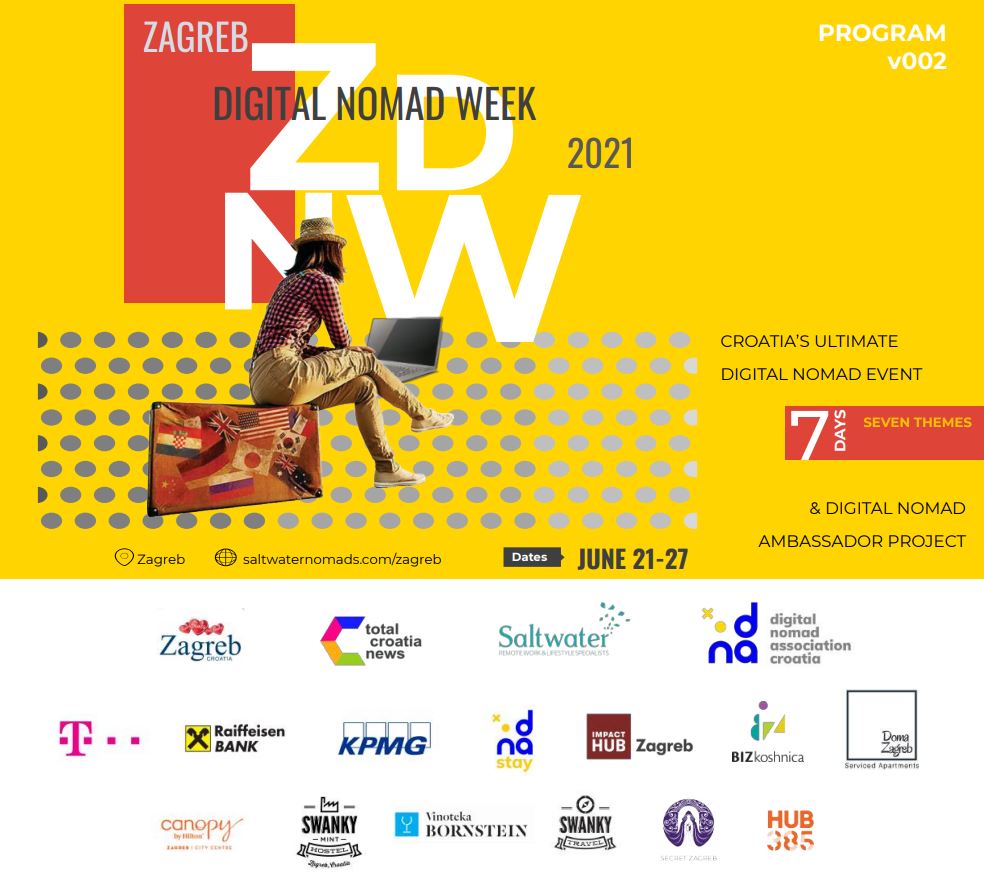Building Zagreb Community: ZDNW Keynote Dean Kuchel, Digital Nomad World Interview
June 23, 2021 - It is Zagreb Digital Nomad Week, and among the speakers are the owners of the two biggest DN LinkedIn groups. Meet one of them, Dean Kuchel of Digital Nomad Israel and Digital Nomad World.
We are delighted to welcome Dean Kuchel from Israel to Zagreb Digital Nomad Week. Dean will be delivering a keynote speech on community building, an essential step Croatia will take in its efforts to develop its digital nomad presence. You can register to attend online or in person here.
1. More than 100 countries visited, a digital nomad for years. It sounds like a perfect life! Tell us how it all started. What was the trigger to set you on your path?
Yes, I have visited over 100 countries in 7 years. It is the perfect life and I am living my dream. I don't think the way I do it is right for everyone, but there are definitely many bonus points, and I have been living a great life on the road for the last 7-8 years.
It all started almost by mistake for me. The most lucrative job you can have is a relocation, to somewhere like the States. Do a few years there, then return to your home country - in my case, Tel Aviv in Israel. I got a job in San Francisco, but after I waited for 2-3 months for the visa, my company asked me to work remotely, which I did.
This is how I met the nomadic lifestyle. I travelled to Taiwan and Japan, then visited a few countries in Europe, all while working remotely. While I was on this journey back in 2014, I started to meet other people enjoying a remote lifestyle. This is where I first met with digital nomads. I discovered a whole new world where I could combine one of my biggest passions - travel - and work.
It is important to step back and note that my mother is a tour guide and has been travelling from an early age. She has been leading groups abroad and around the world. So travel was in my DNA from a very young age, and I always loved to travel. I generally say that I travel for people not places. The world is beautiful but it is the people that make travel special.
When I finally got my work visa, I told my company that it was too late and that I was hooked on this lifestyle and could not return to the office. They answered very simply - you earned it. Remote work can be just as effective, sometimes more so, than being in the office. I showed that I was an effective communicator and team player working anywhere in the world.
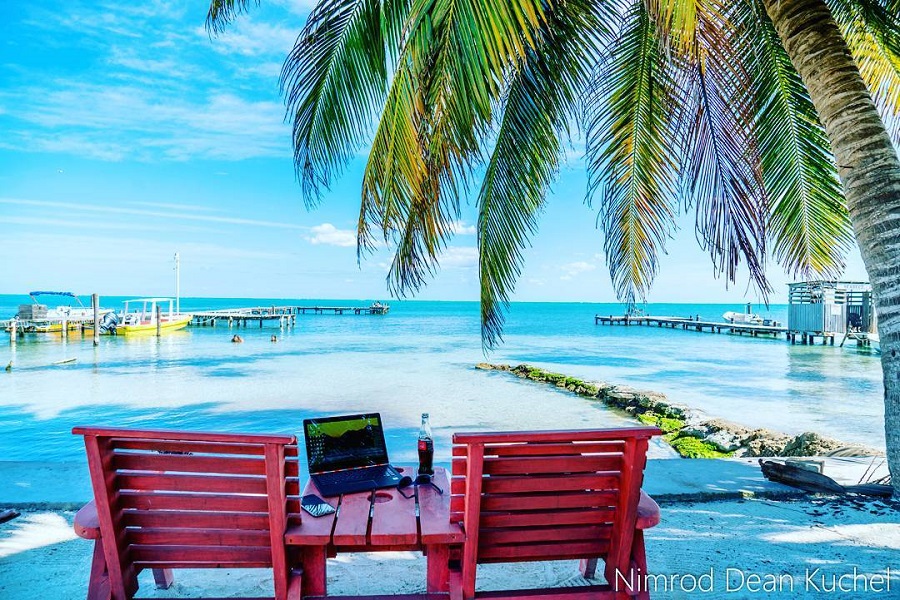
2. Focusing on Europe, where do you think the best places are for digital nomads and why?
There are many, many good countries and hot spots. The highlights would be the Canary Islands and Bansko in Bulgaria. Mostly for the community. Having a like-minded community to connect to which understands you, with people who have made the same life choices as you. It is very supportive and helps each other to grow. Community is key to make a destination lucrative as a digital nomad destination, as happened in the Canary Islands and Bansko over time.
We are seeing beautiful efforts from countries such as Portugal, and of course Croatia, spearheading this change in Europe, allowing nomads to spend time in the country, putting in infrastructure. Events such as Zagreb Digital Nomad Week are great. We are seeing more co-working spaces and more accommodation available on short-term leases.
This broadens the range of countries to visit, and when we mix the basic needs for digital nomads, such as a good WiFi connection, good places to work from, and an affordable cost of living, then we are definitely looking at countries such as Hungary, Poland, Czechia, Bulgaria, Ukraine and Croatia. These are beautiful countries with great culture and good infrastructure. They will be very attractive for nomads in the coming years, and they will benefit greatly from this shift in forces when it comes to where people choose to work from. We will see people leave the States, UK, Germany and other 'first-world' economies, and relocating to more affordable places. Those countries welcoming digital nomads will gain a lot form digital nomads, both economically and immersion in the local community.
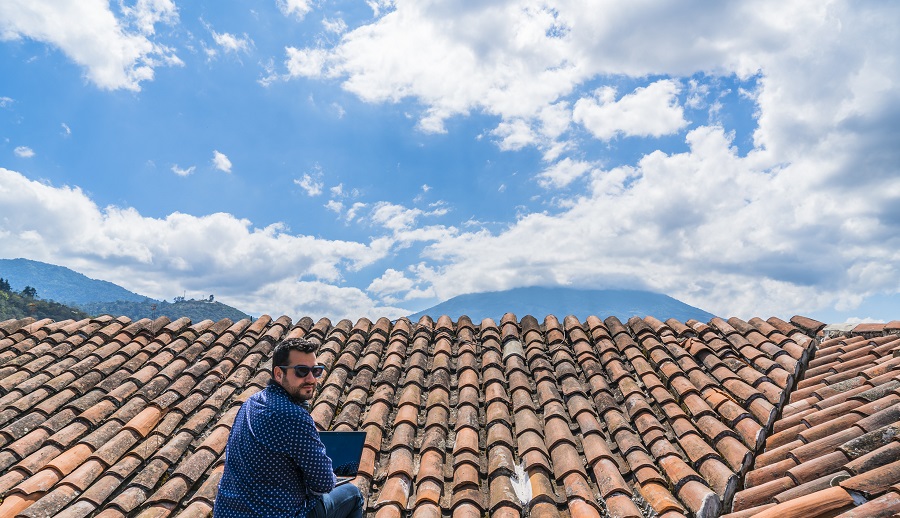
3. The concept of digital nomad tourism is quite new here, and we are learning about the importance of community. Tell us more about this.
Community is to compensate for what we leave behind, for the sacrifice we make, the family, friends and coleagues. It is a network of people who understand our needs, our choices, our lifestyle. The community doesn't question us, about why we do things or how we do them. It gives you a sense of belonging be part of something bigger than just yourself, the movement.
4. I have noticed around Croatia that there are a growing number of nomads, but this building of community is not as strong as it could be. Tell us about the importance of community.
Community is of course a key part of life for all of us, not just digital nomads. But it is especially important for digital nomads, many of whom travel solo, but do not want to travel alone. This is where community comes to compensate for lack of family and friends. This is why we see organic communities developing in places like the Canary Islands, Bansko in Bulgaria, Medellin in Colombia, Bali, and Chiang Mail in Thailand.
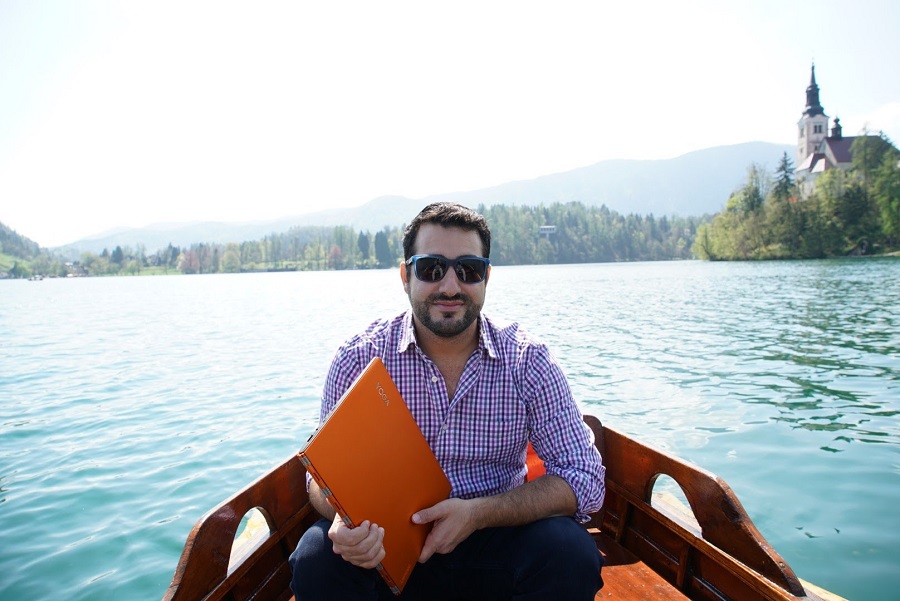
It is this natural need to connect to other people, people often with the same interests and life choices. The community also understands the lifestyle. Sometimes other people look at us and say we are crazy with this life. But a lot of us believe that this lifestyle can work and be sustainable, and when you have a community of people who have made the same life choices and sacrifices, it can be a lot of fun and great way to see the world. We all have our down time, of course, our hearts broken and our bad days, and we need that community to support us. Especially when we cross borders into cultures which are very different from our own. The community makes the transition into new places much easier. There is also the bonus of meeting people who you have already befriended in online communities.
Moving from community to community can be to see the world, but also to be around like-minded people, driven people. For me personally, there is no way I could sustain 7-8 years of travel with no sense of community. I myself run an online community of some 23,000 people, the fourth largest of its kind in the world - Digital Nomads Israel. And I am working on a new global community called Digital Nomad World, with the idea of connecting us digital nomads with each other to exchange ideas, support, and to share all the love and good ideas that we experience.
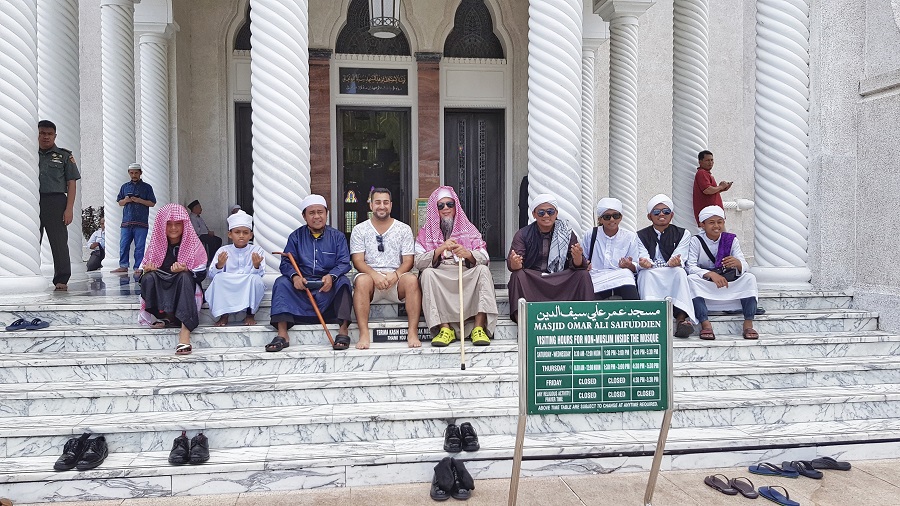
5. If we are looking for a community-building case study, which country and why?
If we talk about community-driven, Bansko in Bulgaria or the Canary Islands are great examples. In both cases, there are individuals like Matthias in Bansko, or Nacho in the Canary Islands. People who put a lot of effort and risk their own money to create co-living and co-working spaces. They put on conferences for digital nomads, and build up community. They are true leaders, and this helps to create these places as hot spots for nomads.
When we look at the authorities, I don't see enough initiatives. If we look at Estonia and the e-residency, I don't think this is really geared towards nomads. If we want to focus on nomads, take a look at what Barbados is doing, although the entry price is quite high, as they are targeting higher-earning nomads.
Countries such as Czechia and Georgia and other countries are also opening up, welcoming people who are earning money abroad. I am happy to say that Zagreb right now at the top in terms of action taken, but we also have places like Bali and Thailand.
Bermuda, Barbados, Dubai are all forming visa policies allowing digital nomads to come. Some countries target different audiences, with Barbados targeting high earners, while Georgia is more accepting of all. Georgia will be interesting to follow, and I think it will benefit a lot. It is becoming popular and the community is starting. It is relatively close to Croatia and the two countries could form a nice travel bubble.
And Croatia. It was one of the first to attract nomads with the visa. It will be interesting to follow progress to see people take residency, start forming companies.
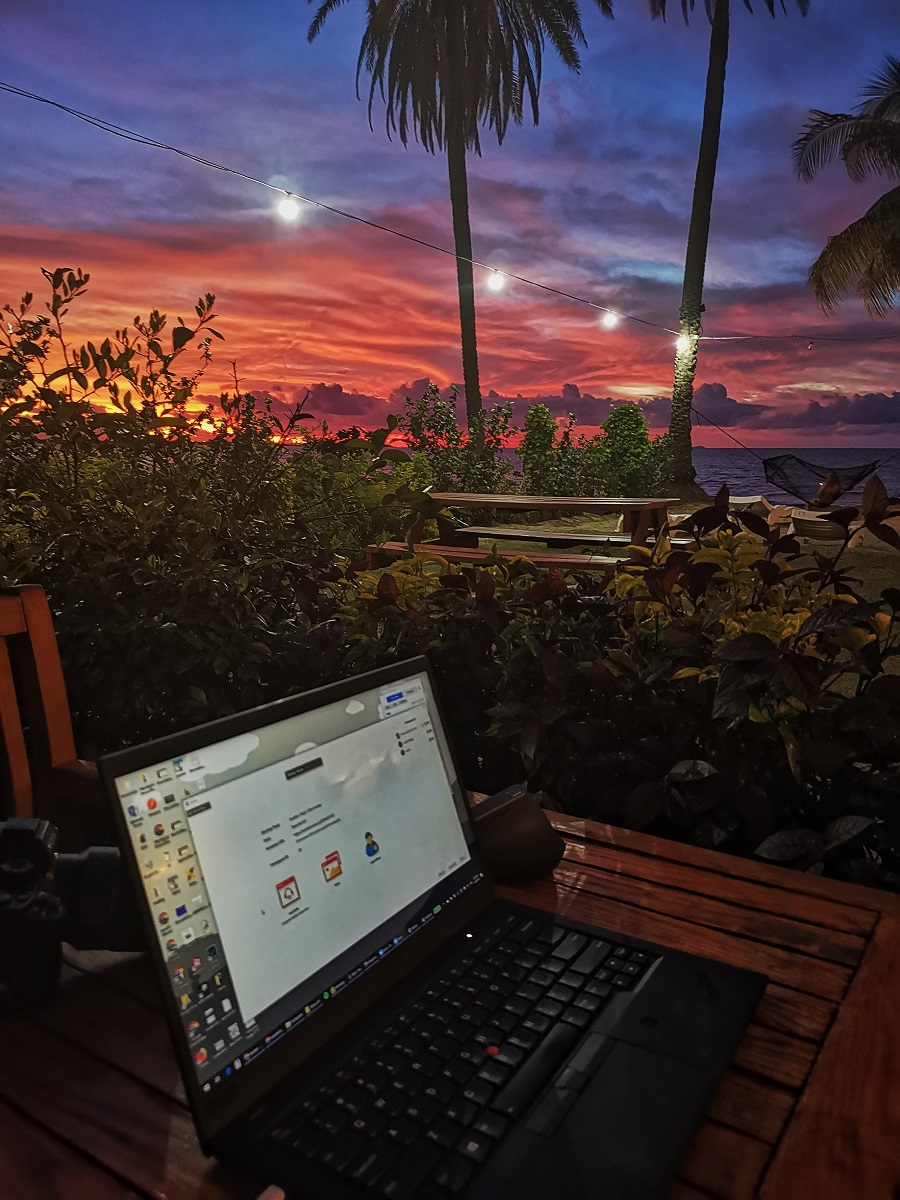
6. How does Croatia rate as a nomad destination in your view, and what should it be doing to raise its profile to digital nomads?
I think Croatia is currently somewhere in the middle at the moment. It has all the great things that nomads are looking for - lifestyle, nature, city life, beautiful see, affordable, history and easy to move around. It has the basic ingredients.
What needs to be added is that community, which will take time. But we are seeing leaders like Tanja from Saltwater Nomads taking this forward. The authorities should continue to stay involved, but Croatia has positioned itself very well. It has great potential. Keep being an innovator and grow that community.
I believe that Zagreb and Croatia are on the right path to become a digital nomad hot spot in the near future. We are seeing a very rare and unique effort by the local authorities and local community and the digital nomad community. The digital nomad permits, which Croatia came up with as a result of the local community working closely with the local authorities.
What Tanja is doing at Saltwater Nomads is doing is an amazing achievement, really unique right now in the world. It makes it very attractive for nomads to come to Croatia and spend time. Kudos to everyone involved in this project. Right now a lot of nomads are stuck in one place due to COVID-19, but I believe that once the world opens up, we will see more and more people coming to visit your beautiful country.
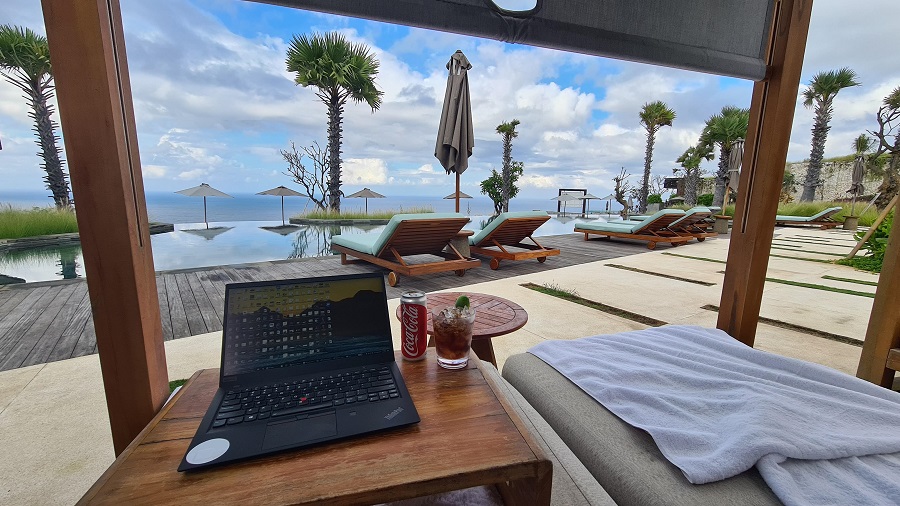
It is just a matter of time to see initiatives such as Zagreb Digital Nomad Week to bear fruit. This is exactly the right thing to do at the moment, this is what attracts people. Of course, as well as keeping the infrastructure up to date. I am talking about good Internet, encouaging short-term lets, and solving other challenges that nomads face, such as access to banking, access to healthcare, access to local services such as gyms, market opportunities for investments for nomads.
A great place to learn from is Estonia. Take a look at what they did with their e-residency programme, for example. And events. More and more events. Events bring people together. Affordable living and co-working spaces bring people together and helps to strengthen the community.
And of course, leadership. Every community needs a leader. To have it happen organically is not always easy. I think Tanja is setting an amazing example as a leader in Zagreb and Dubrovnik. With time, you will have more leaders, local people but also people from all over the world.
Social media is also very important, and digital nomad communities rely more on new forms of media. We see more social networks, more social media, platforms such as Instagram and Tik Tok. Croatia needs to be there to put itself on the map, providing simple information on where to go, where to stay and what to do, tailored for digital nomads.
But really overall I think Croatia is putting in the right effort, it has the right leaders, including the support of the government which is incredible to see. All this together will make Croatia a hot spot in the next couple of years.
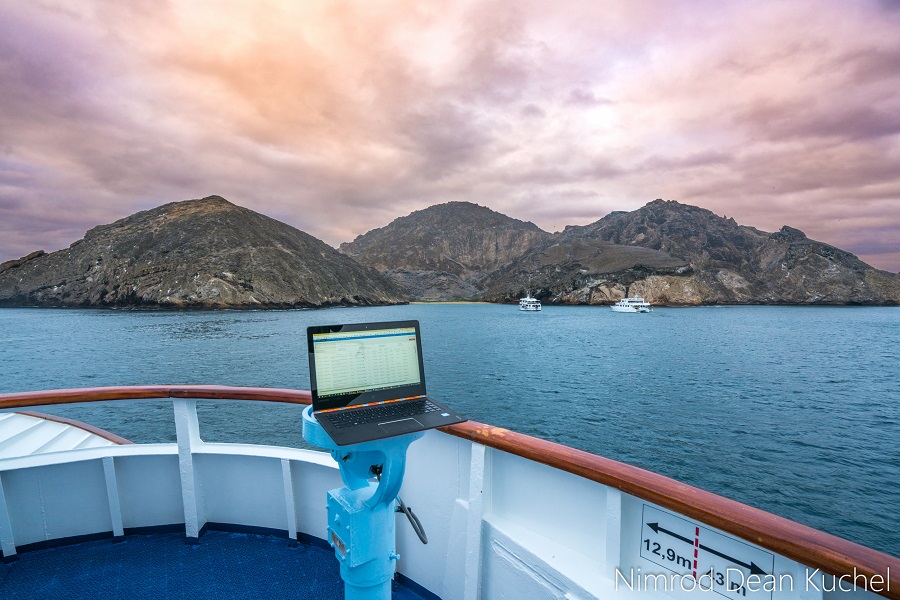
7. Tell us about your involvement in Zagreb Digital Nomad Week, and why did you decide to come?
It was an easy decision to come. I have been following Croatia and Tanja for some time. I am happy to take part in every event that helps to grow the community. I am very happy to play a small part in helping all this grow, and I look forward to meeting old friends, making new friends, and taking part in this great event. I will be speaking about community building.
Meet Friday's keynote speaker, Albert Cañigueral, one of the Dubrovnik nomads-in-residence, and recently appointed to lead the Catalan Government's Transparency and Open Data division. Albert will be focusing on the topic of the day, the future of work.
Meet tomorrow's host - BIZkoshnica, Zagreb Coworking Since 2015: Mirela Marovic Omerzu Interview.
Tourist Board Director Martina Bienenfeld on Zagreb Digital Nomad Week, Ryanair, Tourism in Pandemic
For the latest news and features od digital nomads in Croatia, check out the dedicated TCN section.
Martina Bienenfeld: Zagreb will Become a Desirable Digital Nomad Destination
21 June 2021 – The Zagreb Tourist Board (TZGZ) organises the first-ever Zagreb Digital Nomad Week from the 21st to 27th of June after which the project called Zagreb Digital Nomad Ambassador will start. The latter will enable selected digital nomads to spend a month in Zagreb for free and share their experiences. A closer look at why Zagreb is a desirable digital nomad destination.
As translated from Seebiz.e, Zagreb Digital Nomad Week 2021 and the Digital Nomad Ambassador project TZGZ is organising together with Saltwater Nomads (a company specialising in organising digital nomads' stays in Croatia) and Total Croatia News (media portal).
It is these programs focusing on digital nomads that were the motivation for our conversation with Martina Bienenfeld, the head of the Zagreb Tourist Board.
SEEbiz: what was the main motivation behind deciding for the Zagreb Digital Nomad Ambassador program?
Bienenfeld: Last year changed the way of life for many people. The pandemic, which made working from home common, accelerated the trend of digital nomads and we now have generations of employees that are no longer bound by working hours, but wish to enjoy a more flexible way of life. Also, at the beginning of this year, the new Law on Foreign Nationals came into power. Under it, digital nomads can be allowed to stay in Croatia for up to a year on a non-resident basis. Zagreb, being the capital city, didn't want to miss out on this growing opportunity, so we've decided to organise Zagreb Digital Nomad Week and the Zagreb Digital Nomad Ambassador project.
SEEbiz: it is no secret many fast-expanding IT companies have their headquarters in Zagreb. Is this one of the reasons Zagreb is perceived as a destination for digital nomads? What are the prerequisites Zagreb needs to fulfil to become an attractive and desirable destination for this demographic?
Bienenfeld: That certainly is one of the reasons, but there are numerous factors that influence the choice of a destination. Above all, digital nomads are staying within one place as long as they can and want, and because they are working they value quick and reliable internet connection more than anything, which means the destination needs to have good quality telecommunication infrastructure. After that, they need good value for money and accessibility of co-working spaces. Nice weather is also high on the list. Also, proximity or at least easy accessibility of the destination is one of the conditions. Zagreb offers all these things. In this sense, the level of attractiveness of Zagreb is high and I believe there is potential to grow further, especially seeing how we are one of the first countries to regulate this type of work by law.
SEEbiz: Do you believe digital nomads are just a trend that is, among other things, here because of a global pandemic or is it something that will remain after this situation has subsided?
Bienenfeld: Assessments and research suggest more and more people will want to work independently like this in the future. In other words, they will want the freedom to travel and the ability to work where ever they are at any given time. Therefore, I believe this is not a passing trend, but a new style of working and living that will remain long after this situation.
SEEbiz: The Croatian Tourist Board (HTZ) digital nomads campaign “Croatia, your new office!” garnered great results in the first two months. What are you expecting from the projects taking place in Zagreb?
Bienenfeld: I’m expecting Zagreb to further improve its position as a desirable destination for digital nomads. Croatia’s capital can surely be positioned as a centre for digital nomads and draw in foreigners coming for work and leisure.
SEEbiz: Zagreb has been recognised as a city break destination. In spite of all the restrictions, Zagreb was a good host for Croatia Rally, and then there is also the World Rowing Cup. Is sport, professional or recreational, one of the ways of attracting digital nomads?
Bienenfeld: As I mentioned before – you always need a combination of different factors in order to attract digital nomads. Generally, when speaking of sporting events, we have to be aware they are one of the most important ambassadors of any country or the city in which they are being held. We at TZGZ are especially pleased Zagreb hosted such huge sporting events – World Rally Championship and World Rowing Cup – during these times of uncertainty. This points to the significance of our city in the segment of sports tourism as a special part of the travel industry which contributes to the creation of new quality and competitive position in the travel market. Namely, events like these cast a spotlight on the host destination and make organisers of other similar events across the world consider organising their future events in the same city or country. In the same way, the effects of such a synergy of sports and tourism add to the popularity of the destination hosting these events and represent one of the best ways of promoting Zagreb as well as Croatia.
SEEbiz: Zagreb Tourist Board saw a focus on developing new digital platforms proving successful. How do you view the importance of digitalisation in tourism?
Bienenfeld: Tourist Boards always kept pace with new technological trends and implemented them readily into their projects. We need only remember Zagreb Be There app developed in now distant 2014, which was a multiple award-winning treasure hunt sightseeing app, or QR code city tour implemented in 2013. The pandemic and, unfortunately, Zagreb earthquakes, taught us the importance of being able to respond well and quickly to new situations, follow trends by using digital tools and platforms, and adjust our tourism offer to new conditions. We have turned to digital innovations that allow us to add value, attractiveness, but also visibility to our tourism offer. A recent example is the interactive AR project Virtual Christmas Windows, in which we were first in Croatia to apply augmented reality technology in our Christmas festival awareness campaign. Digitalisation in tourism is imperative today. Tourism and technology are tightly intertwined and travel is unthinkable without digital technology.
SEEbiz: The Around Zagreb project and cooperation of the Zagreb Tourist Board and Zagreb County Tourist Board is one of the first big steps in strategic destination development in Croatia because the focus is on quality content and finding new benefits for tourists, seeing how it promotes quality tourist-focused content in Zagreb’s surroundings or only half an hour from the city centre. Zagreb and its surroundings as a unique green destination, is this the strategy for the post-pandemic period?
Bienenfeld: I’m glad you’ve asked me that as we are just starting with our refreshed campaign in cooperation with the Zagreb County Tourist Board, and soon we will go ahead with Krapina – Zagorje County as well. Project Blizu grada, blizu srca (Close to the City, close to Heart) / Around Zagreb is created with a long-term goal and vision and we would like to have started it even without the pandemic situation. It is natural for Zagreb and its surrounding area to promote together because guests do not care about our administrative borders. They are after quality and interesting content. The pandemic in a sense helped the campaign along because guests are now, more than ever, searching for the options of spending time in nature, on fresh air, surrounded by greenery, all combined with diverse local culture and gastronomic offer.
Last year, most of the visitors to www.aroundzagreb.hr came from Croatia (40%), but also from the markets where the campaign was run – Slovenia (35%), Austria, Germany, and Bosnia and Herzegovina (25%). Interestingly, we are seeing a rising interest from the American market as well, even though there was no advertising campaign specifically aiming at that market, which represents a guideline for future activities. Inspired by the success of the campaign so far, recording over 37 million views, we have improved our platform and are showing it to the important markets again. With this in mind, along with refreshed visuals and itineraries, we have started a new section called “Did You Know?” which showcases various interesting points from our surrounding areas. Besides that, we also have cooking videos featuring authentic local cuisine recipes from Zagreb and the surrounding area. They are made by the famous Croatian chef Mr. Almo Catlak. He set out to present local delicacies to a wide audience with an emphasis on tradition with a bit of a modern approach. We are now starting the campaign for the markets of Austria, Bosnia and Herzegovina, Slovenia, Serbia, and Germany and soon we will be updating it with Krapina – Zagorje County materials. I would hereby also like to give my thanks to all involved in this.
SEEbiz: Zagreb is also an airplane destination. What effects do you expect as a result of RyanAir coming to Zagreb Airport, or how important in this respect is the survival of the national airline company?
Bienenfeld: We welcome all new airlines coming to Zagreb and will be glad to see the RyanAir airplane “tales” among those of other companies already landing in our city. This will contribute to the further positioning of Zagreb as a city break destination and will make it more accessible to interested visitors. As far as the national carrier is concerned, we mustn’t forget it was Croatia Airlines that connected us to the rest of the world when all other companies stopped flying here during the toughest pandemic restrictions. In this sense, I wouldn’t compare these two airline companies because their profiles and business models are vastly different.
SEEbiz: We know we are living in very uncertain times, but at the end of the interview, let me ask you: What is your vision for the long-term tourism development of Zagreb.
Bienenfeld: We need to keep in mind it will take a few years after the pandemic for tourism to bounce back. The earthquake made things even more difficult because it damaged a variety of buildings, some of which contribute to tourist offers or architectural and urban distinctions of the city. The state of tourism will depend on the organisation and readiness of the destination to adapt to new conditions and provide solutions. Further development of tourism in a smart, responsible and sustainable way will depend on how much are we as a sector prepared for new challenges. From the perspective of tourism, it is clear more and more travellers take into account ecology and sustainability, and we, therefore, need to apply sustainable concepts in order to potentially make them into one of the key promotional factors.
Also, it is important to activate underused tourist resources and continue to develop key tourist products of the destination. With the goal of defining a stronger position in the travel market in this context, it is necessary to support innovative and creative development initiatives that contribute to further building of the destination as a centre for urban, regenerative, and cultural scene and encourage dispersion of tourist activities. For the MICE segment we are expecting a slower recovery, but we need to continue communicating with the organisers of conferences and events and position Zagreb as a regional centre for business meetings, gatherings, and conferences. I see additional potential in health tourism, sports and active tourism, and of course food tourism. In any case, what is important and we’ll continue to insist on is that Zagreb is and always was a people’s city.
For more on Digital Nomads in Croatia, click here
Zagreb Digital Nomad Week 2021 Opens at Canopy by Hilton
June 21, 2021 - A strong lineup of Zagreb officials opens Zagreb Digital Nomad Week at Canopy by Hilton.
Tourism is changing, and new opportunities are presenting themselves, just as more tradiional mass tourism seem to be a thing of the past.
The pandemic has helped accelerate the previous trend towards remote work, with an oft-quoted pre-pandemic figure of one billion remote workers globally by 2035, a number which now sounds conservative.
Croatia has been one of the more high-profile countries in the world over the last year with its efforts to introduce the digital nomad permit, which came into effect on January 1, 2021.
The number of applicants is increasingly steadily, but the bigger PR message gained both from the visa push (only Estonia in Europe had a digital nomad visa when Croatia's was announced last summer), coupled with Croatia's more relaxed stance on allowing travellers to come in, and its position as an EU country outside the Schengen zone, has attracted a steady number of digital nomads over the last year.
Saltwater Nomads, in cooperation with TCN, the City of Dubrovnik and the Dubrovnik Tourist Board organised the first-ever digital nomad conference in Croatia last October, followed by the world's first digital nomad-in-residence program in Dubrovnik which ended last month.
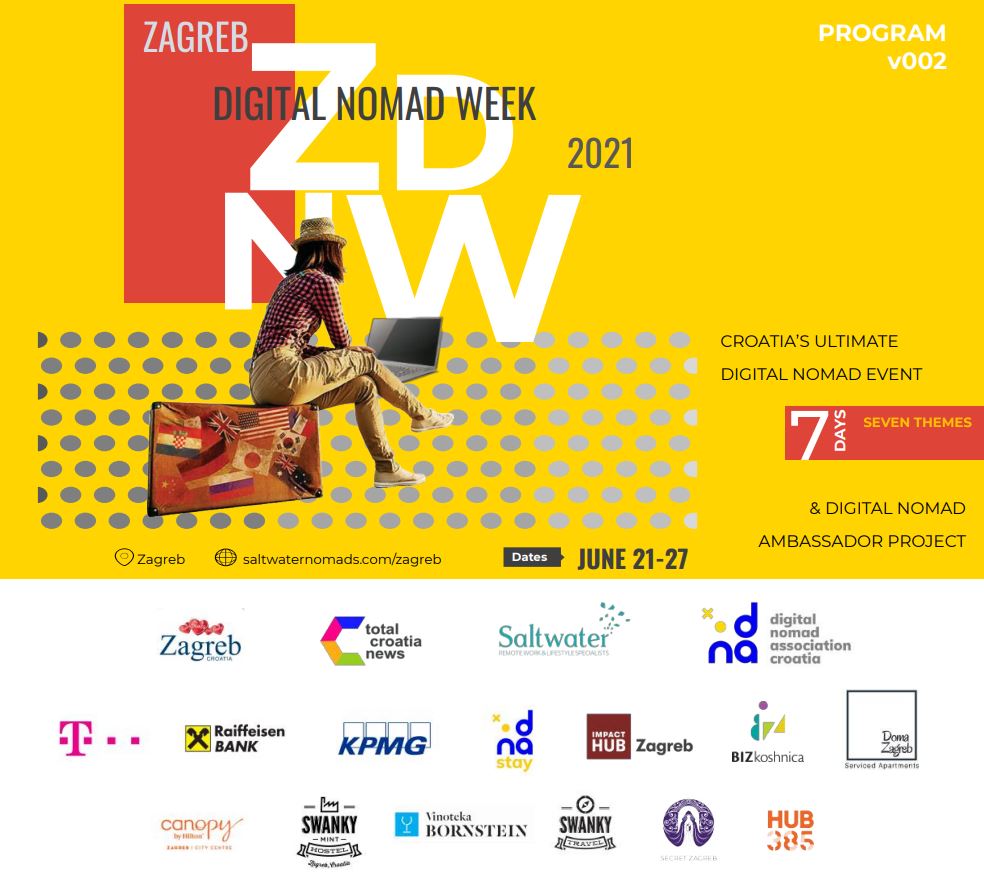
The focus has now shifted to the Croatian capital, where Zagreb Digital Nomad Week 2021 & Zagreb Digital Nomad Ambassador Project kicked off this morning at Canopy by Hilton, one of 7 locations over 7 days, exploring 7 DN-related themes.
The project is a collaboration between Saltwater Nomads, TCN, Doma Zagreb, the Digital Nomad Association Croatia, and the Zagreb Tourist Board (funded by the latter), and there was a high-profile turn out from city and national officials to open the conference.
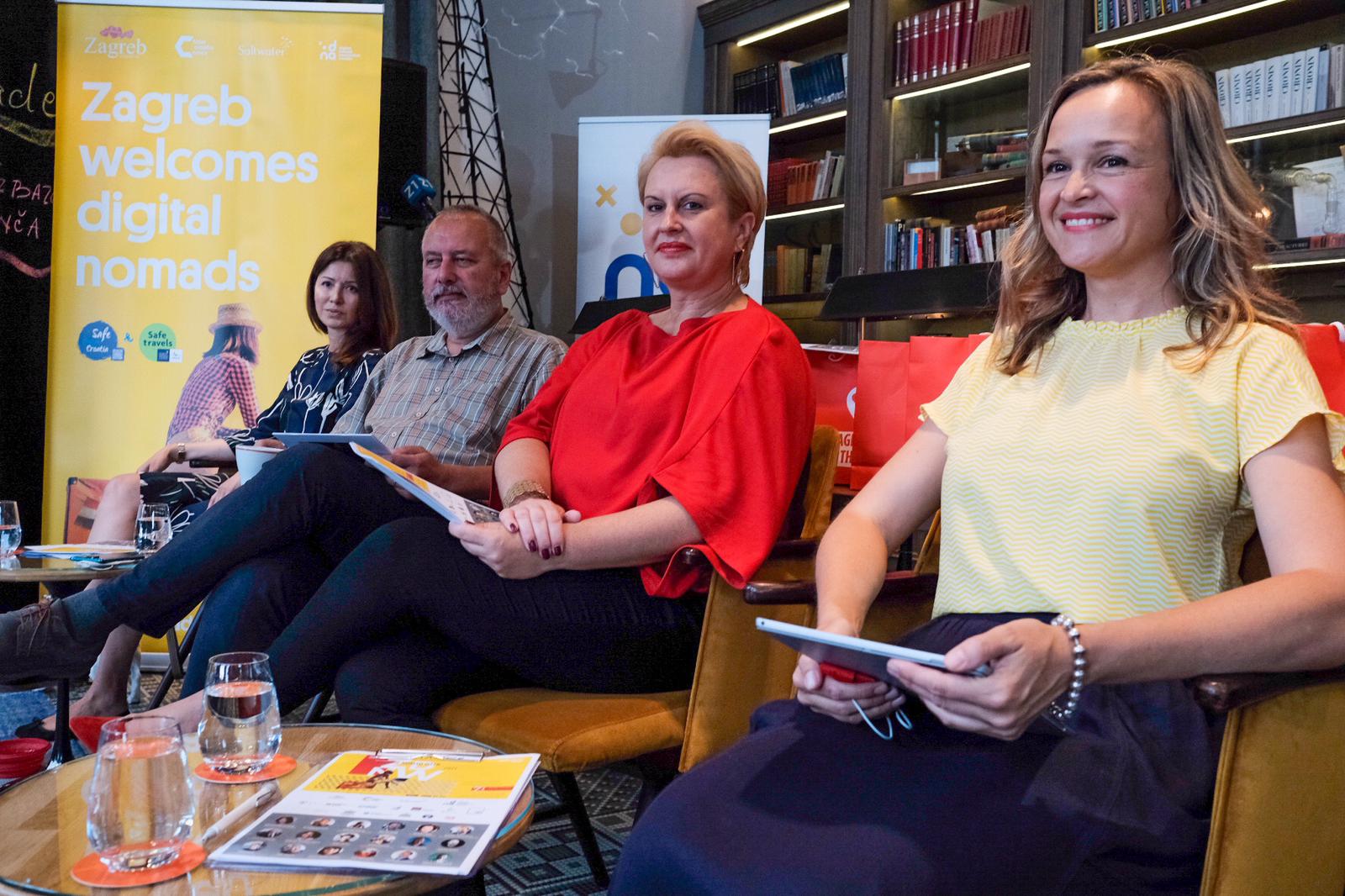
After the opening welcome from Saltwater Nomads CEO Tanja Polegubic, State Secretary for Tourism and Sport, Sandra Herman, was next to speak. Herman pointed out the support the Ministry has given to the push for the digital nomad permit, a collaboration between various ministries, and Dutch entrepreneur Jan de Jong, whose open letter to Prime Minister Andrej Plenkovic on LinkedIn last July started the permit initiative.
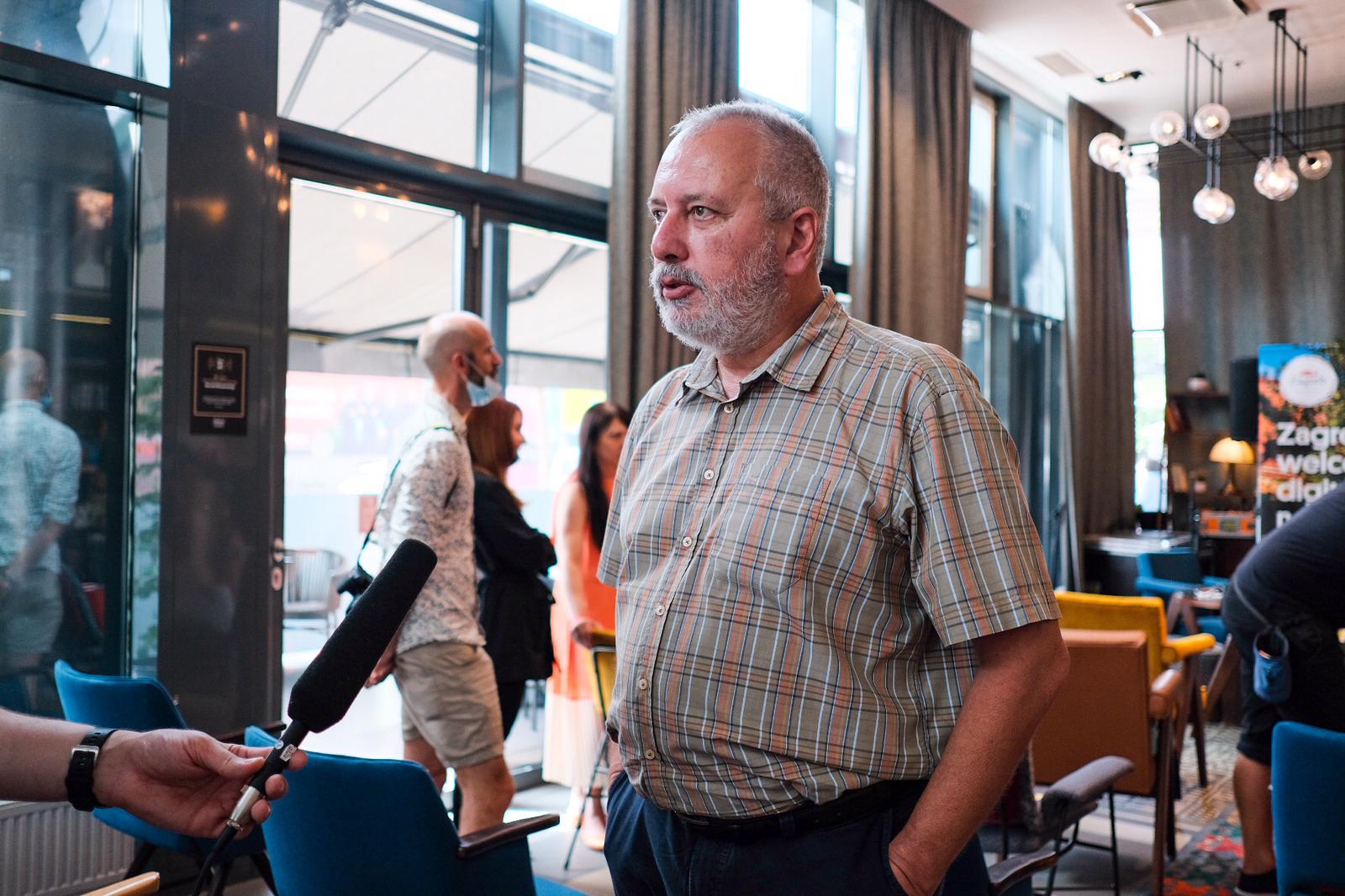
The new Mayor of Zagreb, Tomislav Tomasevic, was represented by Ivo Spigel, one of the founders of the Mozemo platform working with the new city administration. Spigel pointed out the excellence of the Croatian startup scene and plans for digitalisation. A younger and more forward-thinking city administration seems keen to engage with the new opportunity of remote work for Zagreb.
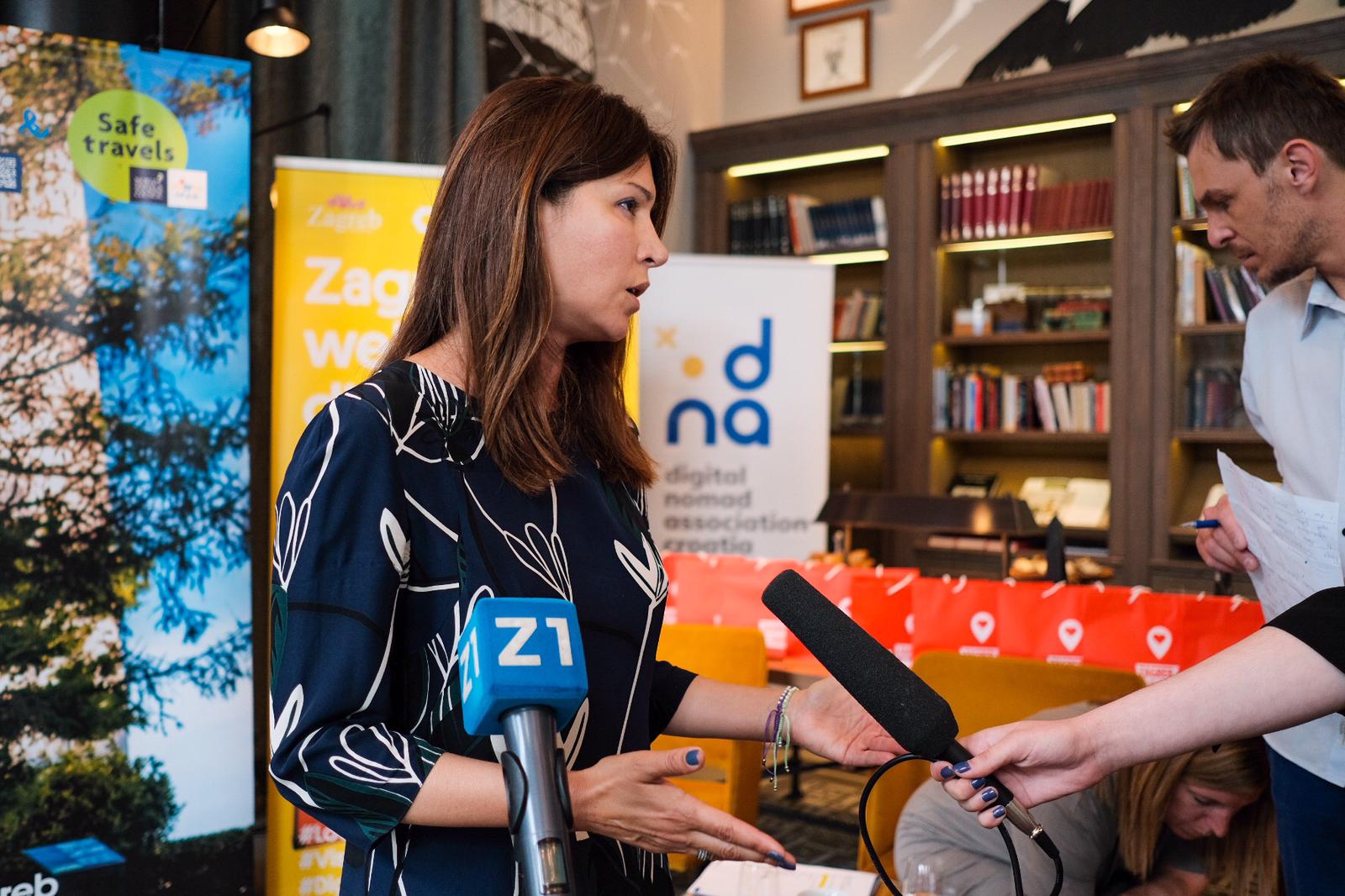
Martina Bienenfled, CEO of the Zagreb Tourist Board, voiced her strong support for the digital nomad initiative, seeing it as a great opportunity for Zagreb tourism to develop in a new direction. A safe, affordable European capital, with enviable lifestyle, great gourmet options, activities and nature in and around the city,, with great connectivity and English widely spoken are just some of the competitive advantages.
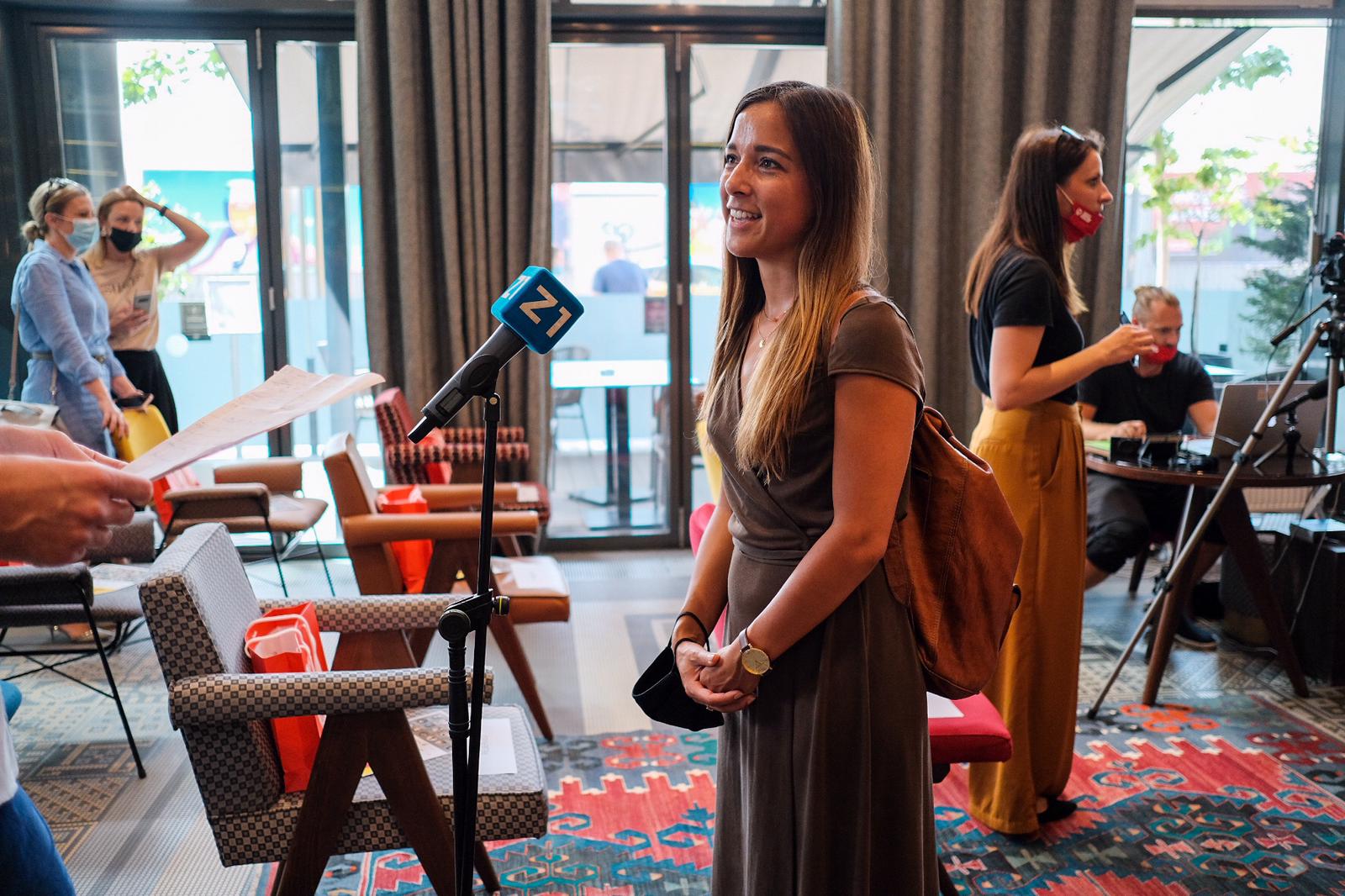
The 7 days will each focus on an individual theme - cybersecurty, online presence, remote careers, tax & finance, the future of work, wellbeing, and explore Zagreb. The keynote speakers are a mixture of in person and remote speakers. Mandy Fransz of Make the Leap Digital, flew in from the Netherlands, and she will have her keynote speech on Oline Presence tomorrow at 09:00 at BIZkoshnica Coworking, tomorrow's host.
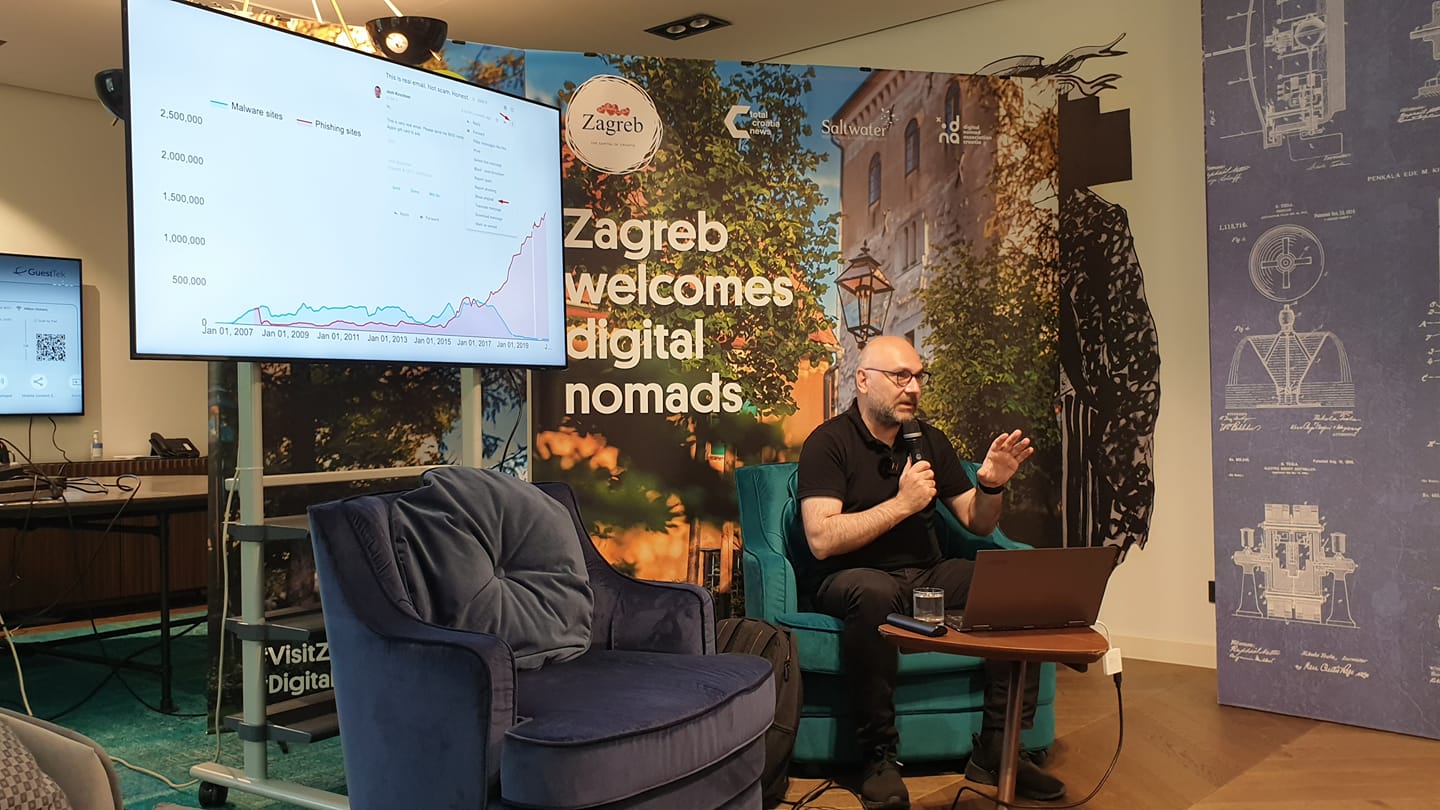
Day 1 focused on the theme of cybersecurity, with Marko Rakar - recognised by the World eGovernment forum as one of the “Top 10 who are changing the world of politics on the internet” - as the keynote speaker. Rakar gaven an entertaining and thought-provoking presentation, which had everyone in the room a little more concerned about their online security. You can read Rakar's pre-conference TCN interview here.
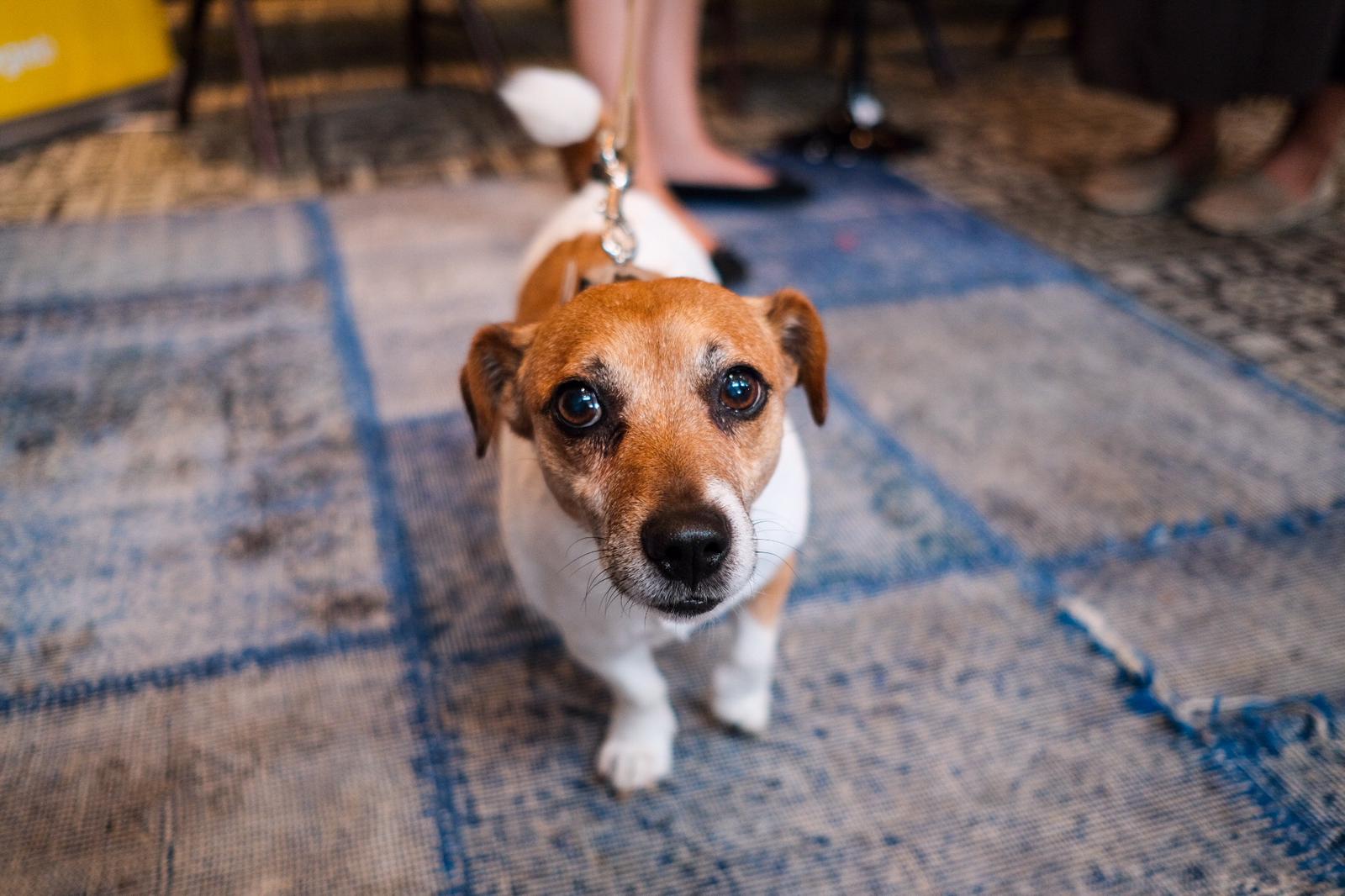
And no digital nomad conference would be complete without its own mascot, and Miso the dog made his presence felt during the opening speeches.
Each evening this week includes a networking Happy Hour, followed by a themed tour of the city by local specialists, Secret Zagreb.
The rest of the programme is available online on the Saltwater Nomads website, and each session is livestreamed. Registration is free, both online and in person, and you can see the rest of the program and register here.
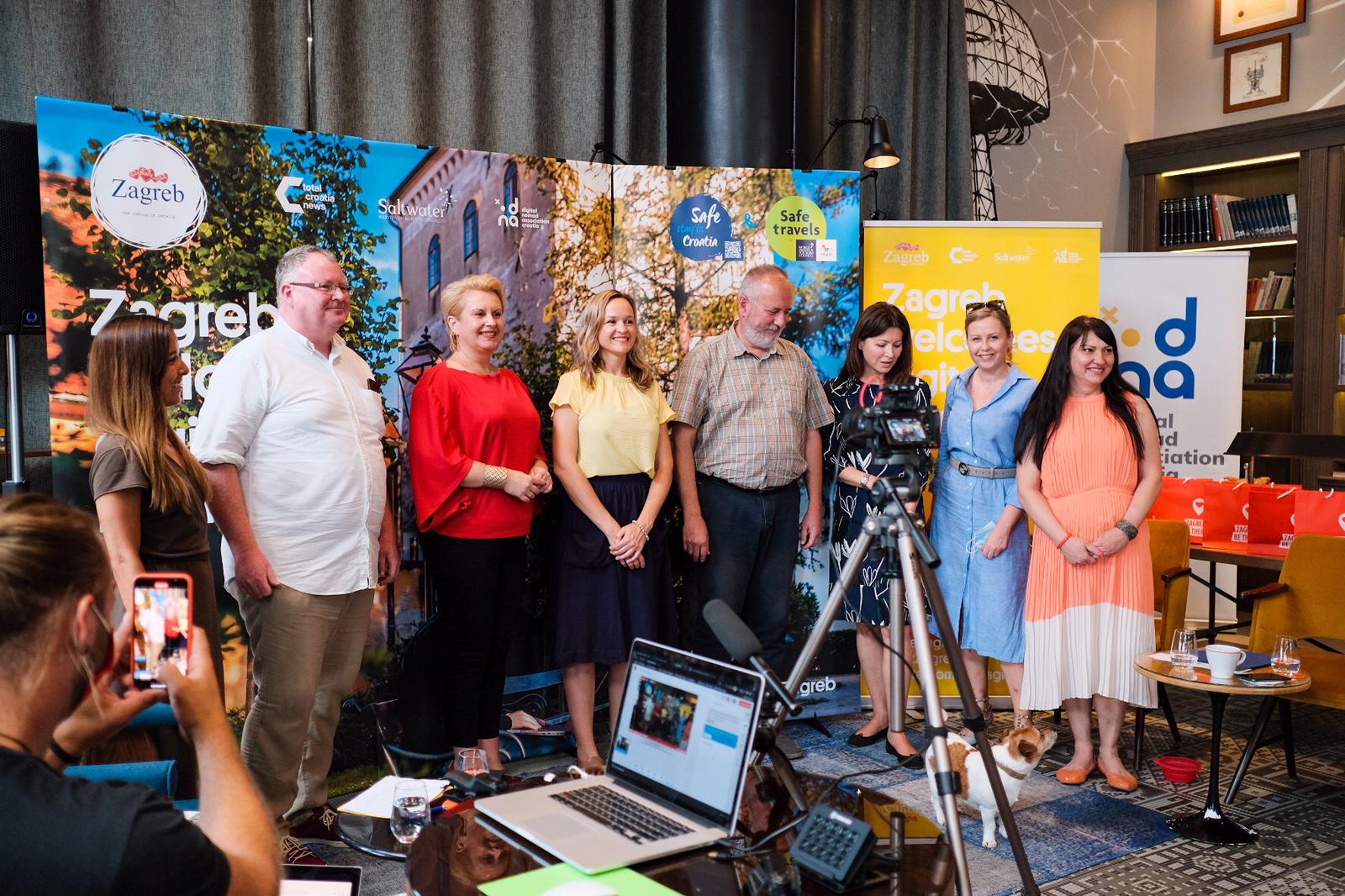
Meet Friday's keynote speaker, Albert Cañigueral, one of the Dubrovnik nomads-in-residence, and recently appointed to lead the Catalan Government's Transparency and Open Data division. Albert will be focusing on the topic of the day, the future of work.
Meet tomorrow's host - BIZkoshnica, Zagreb Coworking Since 2015: Mirela Marovic Omerzu Interview.
Tourist Board Director Martina Bienenfeld on Zagreb Digital Nomad Week, Ryanair, Tourism in Pandemic
For the latest news and features od digital nomads in Croatia, check out the dedicated TCN section.
Sara Peranić: Don't Blame Your Surroundings for Results You Are Not Satisfied with
June 20, 2021 - One of the most common misconceptions in our society is that any kind of success is the result of an exception, rather than a rule, with a bit of luck and divine intervention thrown into the mix. And yet, according to the latest CEPOR report, there are currently 134.365 thriving micro and small business in Croatia. Meet Sara Peranić, whose business took off - in the middle of the pandemic.
Sara Peranić is a social pedagogue, blogger, founder of the project Licence for Imperfection, and the author of SamopouzdaniJA (English: ConfIdent), an online personal development course for women, with over 8 years of volunteer experience in various nonprofit organizations. She is currently studying to become a certified psychotherapist.
An average person usually comes into contact with social pedagogues at government-run institutions – schools, social welfare centers, youth centers, prisons. Given that social pedagogues mostly work in the public sector, would you say that you have chosen an unorthodox career path? Is there such a thing at all? How did it all come about?
„Create what you miss in the world“ – that was my guiding thought. I truly respect science, but it seems to me sometimes that there is a huge gap between scientific knowledge and people that need that knowledge to improve their lives. So, I see my work as building a bridge between.
On your blog, you describe yourself as a personal development addict. Where did you get the inspiration for your blog and later, your online course SamopouzdaniJa? Also, how much time does it take to come up and create content?
Back in high school, I started watching Ted Talks instead of series that young people usually watch. When I moved to Zagreb I was delighted by the number of various educations, courses, etc. I started volunteering and realized pretty soon that faculty knowledge is just not enough. So I attended all that was offered. After a few years, there was accumulated a lot of experience and knowledge and I just felt like it should be spread. Once I was online and realized how helpful it was for people that were following me, I started studying and reading more than ever. So, it all started as a hobby and soon it grew into a business. My programme SamopouzdaniJA is a result of all my educations, books that I've read, workshops that I attended and created, courses, especially psychotherapy education, and my own psychotherapy experience. It is a combination of counselling, psychotherapy, coaching, and some alternative methods and techniques. I created that programme in 1 month, but the knowledge I poured into was an accumulation of 8 years in self-development and education.

Sara Peranić/private archive
You have launched your blog, Sluša-Lica, in 2019, a year preceding the infamous 2020. Despite the unusual circumstances, you have successfully built a commendable online presence, not through one, but six different channels – your blog, Youtube, Instagram, Facebook, Spotify, and your newsletter. What was it like, being an entrepreneur in that situation?
Interest in topics that I talk about was huge even before the pandemic, but in lockdown, people were enormously looking for some sort of self-help content since the circumstances were very unpredictable. Also, they finally had some time to be with themselves, and various distractions that usually occupy their mind were now removed, so many thoughts and emotions came out. And the reason why I posted on so many platforms is that different people consume different content, some prefer to listen to podcasts, others prefer reading blogs. I always enjoyed writing, while recording podcasts was a huge challenge for me. But, I believe there are only 2 options in life: you challenge yourself the way you choose or life challenges you the way you dislike - your choice. Interestingly, I never thought about developing my business and how was it in the pandemic, all I was thinking about is what do people need and how may I serve them best. Business is the result of that.
I have been following your work for over a year and the idea that you often come back to is, 'It's not about the circumstances, it's about you.' What are your experiences with the Croatian bureaucracy as an independent businesswoman? Is it all truly so bleak? Or is it about the point of view we decide to take?
It's up to us, not the circumstances that we are surrounded by is one of the hardest and most powerful lectures that I learned in psychotherapy school. That does not mean that our bureaucracy in comparison with some other countries is not complicated (and in many ways unlogic), but the point is that some give up on building a business because of that while others build one despite that.

Sara Peranić/private archive
Your unique business model enables you to tailor your schedule to your specific needs and work from practically anywhere in the world. Would you consider yourself a digital nomad?
Absolutely, that is how I see my future self. To be a solopreneur, I think your must-haves are: consistency, time management skills, quick decision-making skill, creativity, financial management, and an enormous responsibility. Once you master that, you can create the life you adore living. (PS, it doesn't mean you start living a perfect life without problems – problems and unpleasant emotions are a part of human life experience).
You are also training to become a psychotherapist. Until the changes of the national legislation in 2018, psychotherapy could, more or less, only be practiced by doctors of medicine. There is still no standalone psychotherapy study program in Croatia. What is the role of psychotherapy with regard to psychology and psychiatry, the other two disciplines which also revolve around the psyche, the human soul?
Psychotherapists and counsellors help people with psychological problems and mental health issues through therapeutic relationships and conversations. Psychiatrists, on the other side, deal with mental illness (diagnoses) and are the only ones that are allowed to give prescriptions. Psychologists are firstly concerned with the normal functioning of the mind and behaviour. Psychologists and psychiatrists can further specialize in psychotherapy. In Croatia, just like in other countries, different psychotherapy schools are associated with European and then World Institutes.
During your years at the university, you started a project Licence for Imperfection, aimed at Croatian high school students. Your current project, SamopouzdaniJA - the first of its kind in our region – has, since its launch about a year ago, brought together an international community of more than 250 women from all walks of life. What do women most commonly struggle with? Are these universal challenges or are there some that have to do with our specific Eastern European mindset?

Sara Peranić/private archive
Even though we are all individuals, we all have some core beliefs that bind us, such as "I am not enough, others are better than me, my body should not look like this, the world is a dangerous place". Also, problems that so many women struggle with are other people's opinions and self-doubting.
A bit more specific for our region is the way we think we „should“ live (school, college, marriage, car, apartment, children, work, work, work, die) and money mindset issues (ex. a lot of money can not be earned fair, money changes people), etc.
You teach women that self-respect and self-confidence are not one and the same, but both require a genuine wish and effort to be developed. Working on yourself is not selfishness, as you say. What is the greatest myth on the journey of self-development that you work on deconstructing?
Self-confidence is a much popular term than self-respect, so many women think they have a problem with confidence, while most of them primarily struggle with self-respect. In my programme SamopouzdaniJA we work on both concepts because even if you believe that you can achieve goals (you have confidence) if you do not have self-esteem, you will not be satisfied when you achieve them. After all, you will still believe that you are not good enough or worthy. On the other side, if you have high self-respect, but low confidence, you will be unsatisfied because you will not be able to achieve your goals.
One of the greatest myths of self-development is surely the one you just mentioned, that if we love ourselves and work on ourselves it means that we are selfish while just the opposite is true. If we do not learn how to respond to our needs and expect others to do that for us, we become people-pleasers, codependent, etc. The other myth is that we are defined by our past and there is nothing we can do about it. The truth is we can do a lot. We can not change what happened in the past, but we can surely change our opinion of what happened and also choose how it will or will not affect us in the future. And lastly, people often believe that they don't have a choice when it comes to feelings. Feelings are not something that affects us from outside but something that we create within us by the way we think. Since we can manage our thoughts we can also change how we feel.

Sara Peranić/private archive
You are soon launching a comprehensive new course which has to do with female leadership, is that right? I notice that you put a lot of importance on the power of the right kind of community. Essentially, we should surround ourselves with people we consider our equals, as being solely around those we strongly admire and think 'above' us can stunt our growth, do you agree?
Currently, I help women build self-confidence and change their lives by changing the relationship they have with themselves. The more I am in business, the more I realize how important self-development is when it comes to growing your business. I am 100% sure that my fast business growth happened because I worked on myself first. So, I decided to create a programme that will help entrepreneurs set up their mindset to achieve big goals while enjoying the process of who they become and what they create. Being an entrepreneur means dealing with fears, negative thoughts, and lots of decisions on a daily basis. The faster you learn how to manage your mind, the faster your business will grow.
If you want to change your results, you have to change who you are. In any aspect of your life.
Speaking of surroundings, I see it a bit differently. I would say that you should surround yourself with people you want to become. For example, if you want to get yourself in good shape, you have to surround yourself with people who regularly go to the gym. If you want to quit drinking, consider not visiting places you used to drink at. If you don't know where to find those people, find them online – you have to start somewhere.
My advice would be: don't ever blame your surroundings for results you are not satisfied with. Your surroundings, just like your results are your responsibility.
For more on Made in Croatia, CLICK HERE.
Future of Work, the View from Barcelona: Albert Cañigueral Interview
June 19, 2021 - Recently appointed to lead the Catalan Government's Transparency and Open Data division, Albert Cañigueral will be a Future of Work speaker at Zagreb Digital Nomad Week.
One of the many exciting things about next week's Zagreb Digital Nomad Week (ZDNW) is the sense of continuity from recent events in Dubrovnik. Dubrovnik for Digital Nomads last October was the first-ever digital nomad conference in Croatia, and it was followed by the world's first Digital Nomad-in-Residence project in the Pearl of the Adriatic.
One of the ten winners was a Future of Work explorer (and published author on the subject), Albert Cañigueral from Barcelona, whose application video you can see above and initial interview here.
Albert's contribution and insights throughout the month were magnifcent, and he was a popular member of the group, and he became known as the Dubrovnik Beach Bum after an exercise in stereotypes and reality on the digital nomad lifestyle.
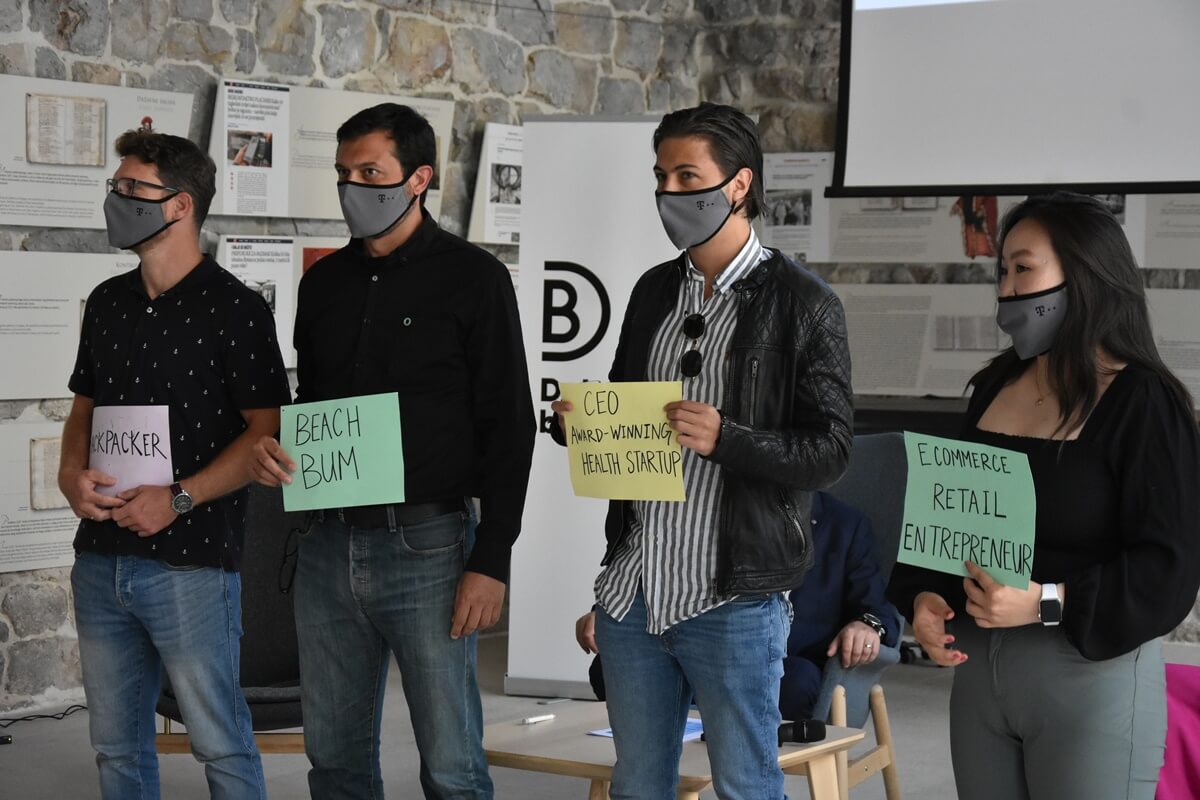
It was only natural that we would try and enlist Albert's expertise in ZDNW, and we are delighted that he has agreed to be a keynote speaker on Friday, June 25, on the subject of the Future of Work.
Albert had initially planned to come in person, but was recently approached to head the Catalan Government's Open Data and Transparency division, and so his presentation will be done remotely. Albert kindly found some time to tell us more about his thoughts about Croatia as a DN destination, as well as the opportunities and challenges ahead.
Albert will not be the only contributor from the Dubrovnik programs, with fellow resident nomad-in-residence, Ron Tardiff, coming down from Budapest, and Dubrovnik Tourist Board director Ana Hrnic also a ZDNW panelist.
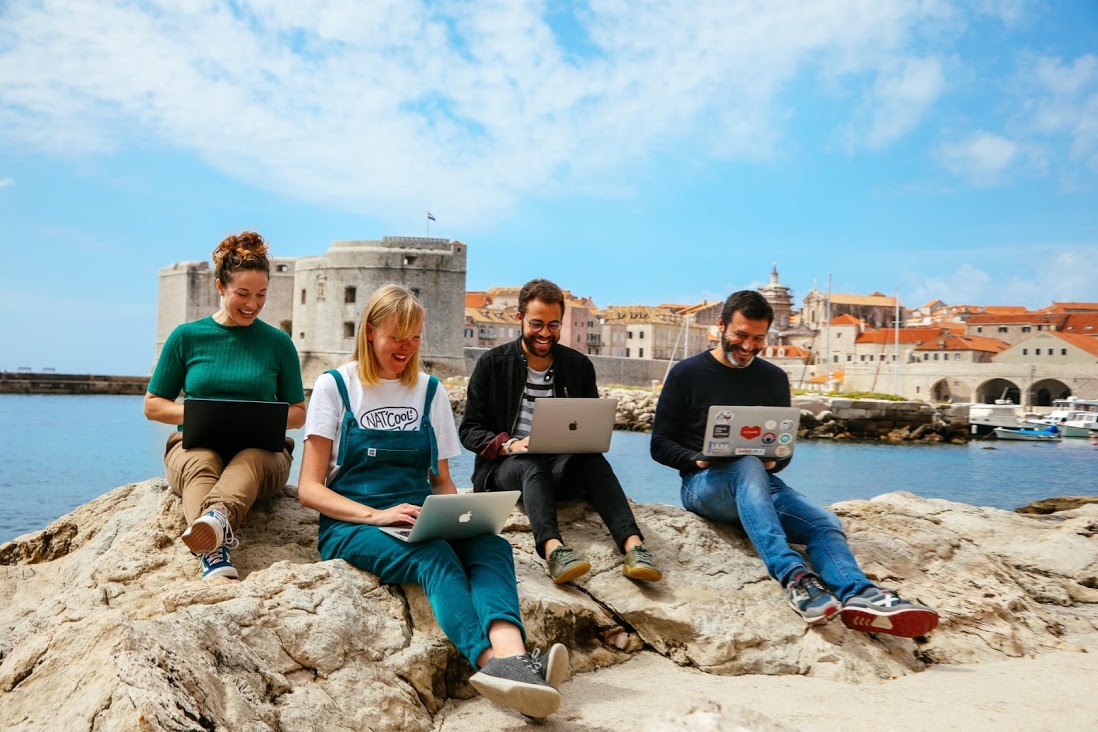
1. From Dubrovnik beach bum to leading the Catalan government's Transparency and Open Government division. Your life has changed since we last met in Dubrovnik a few weeks ago. Congratulations on your new position. Tell us firstly a little about that.
Thank you! It was completely unexpected. I’ve been part of a project “Catalunya 2022” with 30 experts to deliver a post-pandemic set of ideas for Catalunya. One of the co-leaders of this project, Victoria Alsina, was appointed “Consellera d'Acció Exterior i Transparència” of the catalan government (Generalitat de Catalunya). When she started creating her team, I was asked to join, and I could not refuse. It’s an honor to serve from this position and I am sure I will learn a lot too.
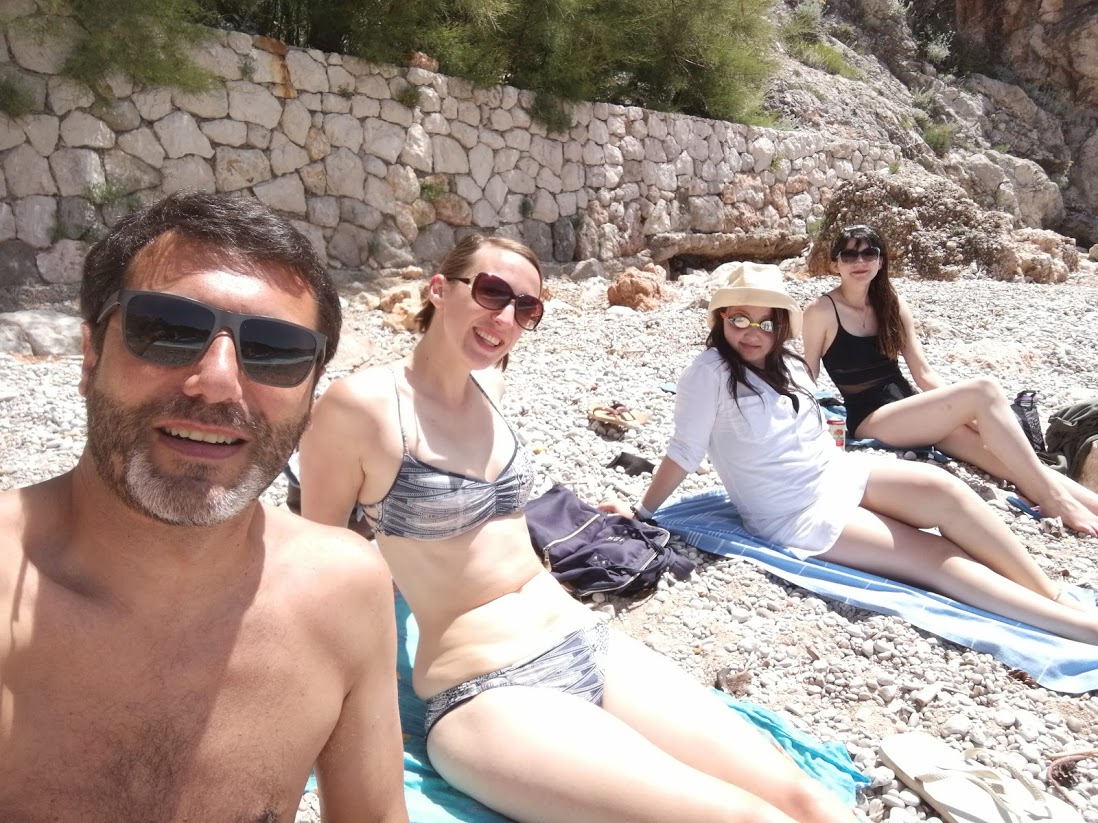
2. As an expert and published author on the future of work, and someone who has just spent a month as one of Dubrovnik's Digital Nomads-in-Residence, your perspective is very interesting. Tell us firstly about your Dubrovnik experience. You were obviously not expecting to find the perfect DN destination. How would you sum up your 4 weeks there?
The sentence “content is king, context is queen” is widely used in marketing. In the DN universe I would translate as people (community) is king and location is queen. Our experience was just mind-blowing because of the community of DNs that were selected to participate, the partners of some DNs who decided to be part of the adventure, the local people who joined the workshops and other moments, the professional team that ran the whole programme and also the support from the city hall (in the middle of local elections!).
Then the 4 weeks were a lot about exploration, discovery, going with the flow, collective learning, etc.
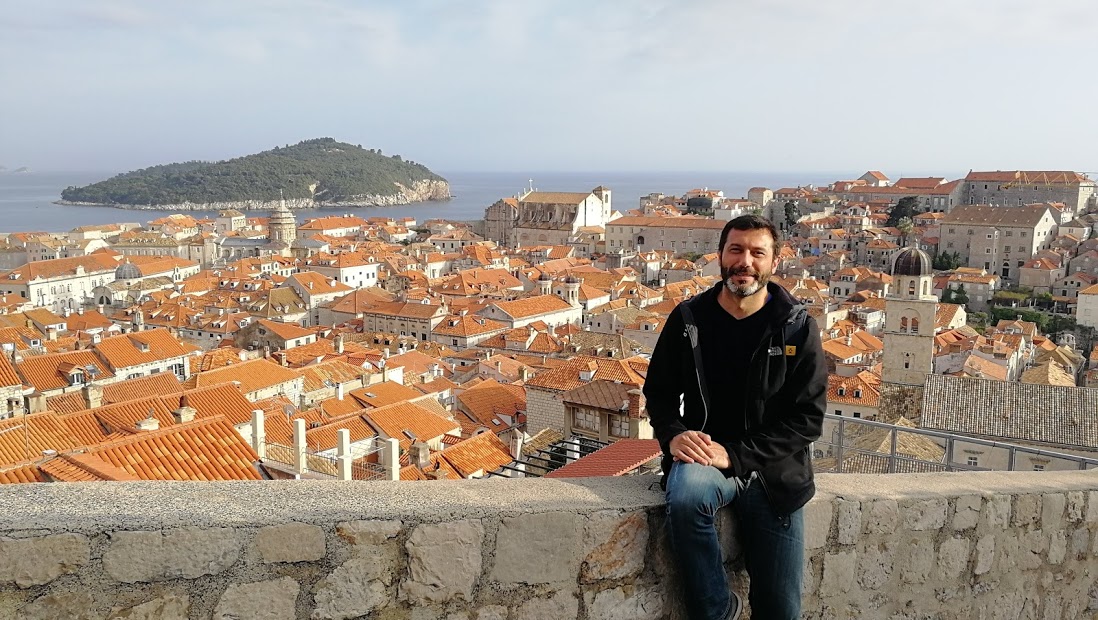
3. Barcelona is an established nomad hot spot. What lessons can cities like Zagreb learn to make themselves more attractive to potential digital nomads?
“Simplicity is the ultimate sophistication” is a quote attributed to Leonardo da Vinci. For any destination that wants to attract DNs the simpler the better. I mean that in terms of where to find DN-related information, where to access services (lodging, work spaces, health, communication, etc.), bundled offers for mid and long term stays, reduced language barriers, where to find other DNs and locals, etc.
I would also encourage cities to break from the “competing for DNs” with a scarcity mentality and embrace a “network of DN destinations” with an abundance mentality and cooperation among cities. What about a network of DN friendly destinations?

4. From your recent experience in Croatia, what would you say are its competitive advantages in the DN niche?
The obvious ones are location, climate, living costs, widely spoken English, friendly locals, etc.
A unique asset that we discussed several times was that Croatia is not part of the Schengen area so that provides a number of unique benefits for short term DNs that are always juggling with visa limits. The pioneering and generous DN visa is also another important asset.
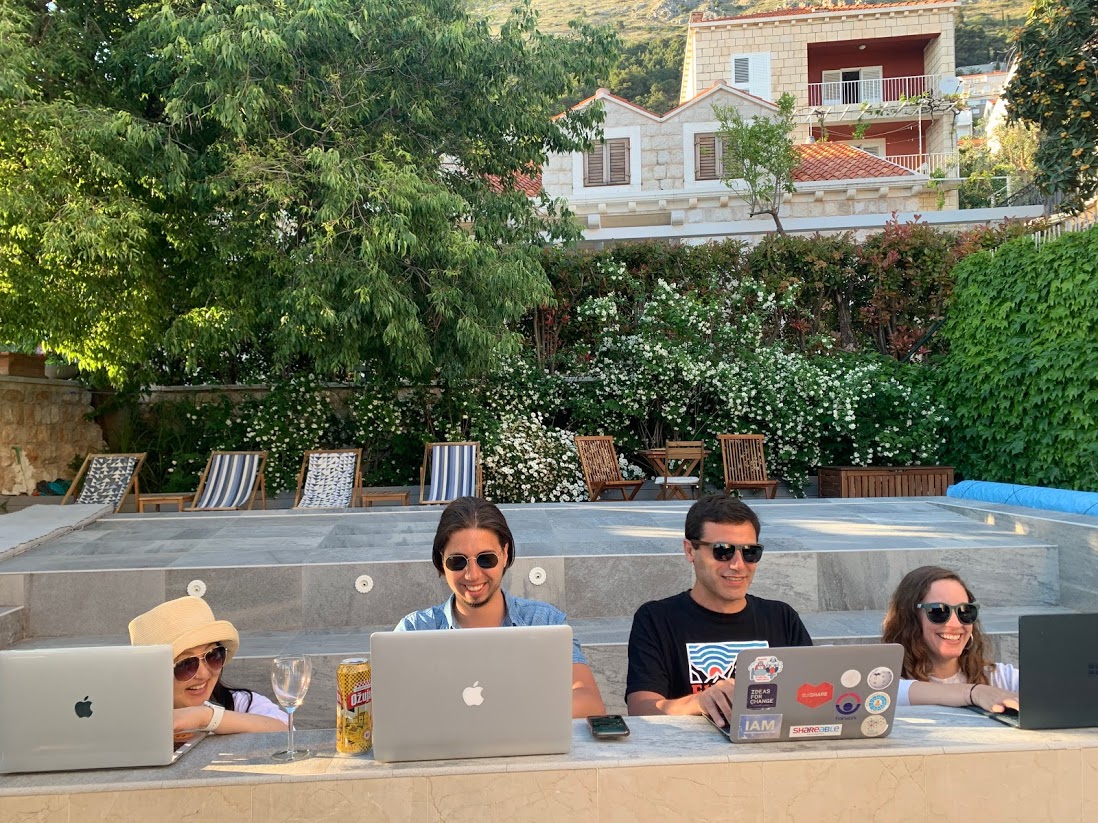
5. And what are the areas Croatia needs to focus on to improve its offer? Do you have 3 quick wins that Croatia and Zagreb could implement?
I won’t be very original as the recommendations we gave to Dubrovnik are largely applicable to Croatia in general and Zagreb in particular: 1) a “seal” that helps to identify DN friendly accommodations (including coliving) 2) as well as orchestrating an ecosystem of workspaces in the city (coworking, hotels, public libraries, etc.). 3) To think not only in terms of long term DNs but also in shorter experiences like ours in Dubrovnik (1 month) with the slightly different concept of “workations”. I see a lot of potential in this area, especially for European workers.
6. The future of work is a weighty topic. Without writing another excellent book on the subject, can you give us a snapshot of where this is all going, and how do cities like Zagreb prepare for the imminent huge change?
It’s impossible to predict where this is all going. Work (tasks), management of workforces and workplaces are being highly impacted by digital technologies. All at the same in all types of directions depending on each context. So the message is we are moving from a monolithic (quasi religious) perspective on what “work” is and means to a huge range of possibilities that we are only starting to experience and understand. Be flexible and eager to learn
In the project “Ciudad en Beta” (City in Beta), that we recently started, we are exploring how the new ways of working and living are creating a metamorphosis in the cities, metropolitan and rural areas. Check the twitter feed to get an idea of the topics at hand. My recommendation is to keep a truly systemic perspective. One must break functional, managerial and political silos while trying to prepare for these changes from a city perspective. Think about city services, economic development, real estate, tourism and citizens wellbeing at the same time. Keep an eye also on high tech developments that might have an impact on how we work in the next decade (telexistence, metaverse, etc.) while trying to anticipate sociological and cultural changes in the analysis. This last bit is the hardest to predict.
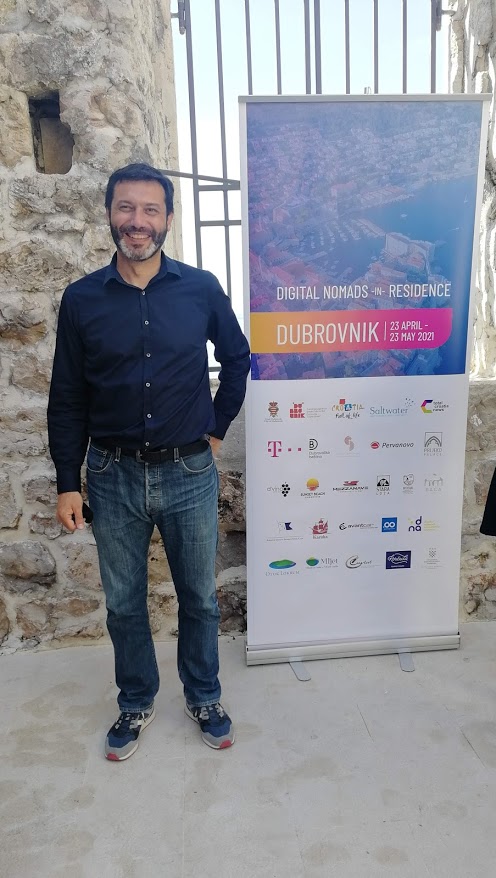
7. We are thrilled that you will be joining Zagreb Digital Nomad Week as a keynote speaker. Tell us a little about your involvement.
I wanted to travel back to Croatia but due to my new position that is, unfortunately, not possible. I will be part of the discussions around the future of work on friday explaining some of the topics mentioned in this interview and deep diving where people have more interest. I am really excited to “be back” to Croatia.
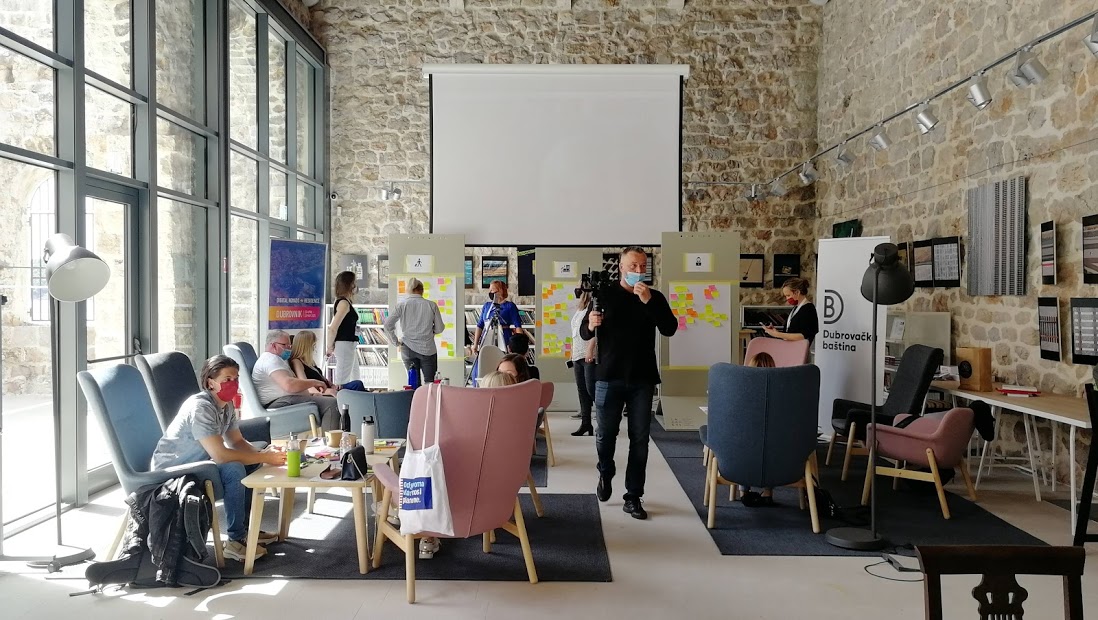
8. And lastly, if Croatia takes the correct steps to develop this niche, where do you see Croatia on the European stage for digital nomads in 3-5 years?
Clearly on the top 5 list of DN friendly destinations in the Mediterranean area. Hopefully with lots of links with other DN friendly destinations as part of, and maybe leading or co-leading, the network idea I hinted at before.
DNs growth in the next 3-5 years will create doubts and tensions in several areas of our work, life and social security systems which were designed and optimized for the traditional way of working. For it’s scale and dynamism I think Croatia can be at the forefront of the much needed experimentation.
You can register for free for Albert's presentation (and all other presentations), both online and in person on the Saltwater Nomads website.
Want a free month of accommodation from July to December as a Zagreb Digital Nomad Ambassador?
For the latest news and features on digital nomads in Croatia, follow the dedicated TCN section.
Zagreb Digital Nomad Week 2021: Final Program, Register Now!
June 18, 2021 - The Croatian capital will showcase its digital nomad potential next week with the inaugural Zagreb Digital Nomad Week 2021. See the full programme.
Seven days, seven themes. Locations and events all over the city. A chance to showcase the magic of Zagreb from all angles.
Zagreb Digital Nomad Weeks kicks off on Monday (see the full programme here), a collaboration between Saltwater Nomads, TCN and Zagreb Tourist Board (who are financing the project), supported by the Digital Nomad Association Croatia, Doma Zagreb, KPMG, Hrvatski Telekom, and Raiffeisen Bank.
Each day will focus on a different theme - cybersecurity, online presence, remote career advice, tax & finance, the future of work, wellbeing, and explore Zagreb - with a mix of presentations, networking, free coworking, and social events.
Zagreb Digital Nomad Week 2021 will bring together a great list of Croatian and international experts in locations all over the city, and there are many Croatian businesses which have bought into the concept to co-create a fantastic week for those looking to explore Zagreb as a digital nomad destination.
Attendance is free, both online and in person, but be aware that physical places are limited, due to the current measures. All registrations are being handled via the Saltwater Nomads website. The event will be live streamed on TCN social media, as well as the Zagreb Tourist Board YouTube channel.
A key element of the week will be networking, with several social events arranged in the evening, as well as some of Zagreb's most interesting and innovative tours, guided by the inimitable Iva Silla from Secret Zagreb.
ZDNW follows on from two successful events, also organised by Saltwater Nomads, in cooperation with TCN, the City of Dubrovnik, and the Dubrovnik Tourist Board, and it is encouraging to see participation at next week's event from key partipants from last October's Dubrovnik Digital Nomads-in-Residence conference (the first in Croatia), and last month's Dubrovnik Digital Nomads-in-Residence. Dubrovnik Tourist Board director will take part in the Zagreb event on Friday on a panel moderated by Ron Tardiff, one of the 10 resident nomads, while another Dubrovnik nomad resident, Albert Cañigueral, will give a keynote speech on the future of work. Cañigueral was last week appointed by the Catalan government to lead its Open Data and Transparency division.
Full details of the weekend programme will be released on Monday.
For an online version of the programme, click here.
To register for each of the events, click here.

No week-long conference highlighting the Zagreb lifestyle would be complete without its four-legged mascot.
Meet Mišo, The Dog,Mišo, The Dog, born August 15, 2011 in the zodiac sign of Leo. To our knowledge, this lively ten-year-old is the father of five children, and perhaps more. This adorable Jack Russel suffers from a personality disorder and thinks of himself as a Rottweiler. Mišo mainly spends his time sniffing and exploring the numerous green parks of Zagreb. He is a special expert in sniffing the green slopes of Šalata area. When on vacation, Mišo enjoys the island of Hvar the most, where he is already a well-known and welcomed guest.
See you in Zagreb!
For more news and features about the digital nomad scene in Croatia, follow the dedicated TCN section.
Zagreb Digital Nomad Viewpoints: Impact Hub Co-Founder Hermes Arriaga
June 18, 2021 - Continuing our look at different perspectives ahead of Zagreb Digital Nomad Week 2021 & Zagreb Digital Nomad Ambassador Project, some thoughts from co-founder of Croatia's first-ever co-working space, Mexican Hermes Arriaga.
Ahead of Zagreb Digital Nomad Week 2021, which starts on Monday, we continue our look at Zagreb innovators from the co-working scene to get their perspectives on the current situation and future possibilies. One of the early movers and shakers came all the way from Mexico. Hermes Arriaga has had quite an impact as co-founder of the first co-working space in Croatia, Impact Hub Zagreb, way back in 2013.
1. Let's start with the obvious question. From Mexico to Zagreb - how and why?
I first came to Croatia in 2004, to visit my girlfriend back then. In 2006 I also came shortly for a small summer activity building the basis of a primary school building in Vukovar with my friend and other volunteers. I returned once more in 2008 where I spent around 8 months on Murter Island typing my MSc thesis while my girlfriend was doing an internship. The final visit was in 2009 when we moved from The Netherlands, after we both finished our Masters degrees. I decided to stay because of the potential in social and economic development I saw the country was going through pre-accession to EU.

2. Impact Hub was a very early mover in the coworking and community building scene. When did you start, and how would you describe the journey so far?
We knew about the concept back in 2008 when we were in The Netherlands, but it was only in 2010 that a group of 6 crazy persons (5 Croatians and this Mexican) joined as the funding team. Two years later we opened up in January 2013 as the first ever coworking space in Croatia with the pupose of social impact in mind.
The process of pre-opening was not easy since we were doing a lot of community building, we started with almost no funding capital and an idea which was not proven. The first 2-3 years were critical, a lot of iteration on the business model, many mistakes but also quite a lot of satisfaction, such as entrepreneurs getting high quality business support, the funding we helped them to obtain and the connections they got, were all part of the first stage of our business.
From 2016 to 2019 we consolidated the business, getting stable revenues and a better positioning in the market being recognized by organizations in the private, governmental and civil society sector as the place where change comes to work. We also started with the bigger programmatic part of our business managing, designing and developing programs of entrepreneurial education and support to different markets (social entrepreneurs, women entrepreneurs, migrant entrepreneurs and the development of skills and capabilities of youth).
The journey from October 2019, when we moved (for the 2nd time) to a bigger space (550 sqm) with more space for hosting events and other gatherings, bigger area for offices and coworking, to March last year was all going according to our growth plan. Then a pandemic started and the earth decided to shake. Take a look on our report with many info about our journey.

3. Tell us about some of your successes and failures on that journey.
Pre-pandemic, we offered an inspirational space designed for human interaction and learning. We hosted a vibrant and diverse community, and we provided meaningful and curated content of support. 70% of our members are co-founders of their project/organization. Since 2013, 126 new full time jobs have been created by Impact Hub members and only in 2018 for example, 70% of members achieved double digit revenue growth (vs previous year).
Our own business revenues were growing organically (18% growth rate the last 5 years until 2019), the space-based model with the expansion we had in the new space was very close to being self-sustainable, the programmatic area of our business with acceleration, incubation and mentoring was also growing, and a couple of small consultancy engagements where appearing on the horizon. Among other relevant data that we have until 2019, is a Net Promoter Score of 60 among our members and other people coming to the space, 81% of the members have said they accessed new clients and beneficiaries while working here and 95% of them said that most people in Impact Hub can be trusted (previous info is from yearly surveys analysed by the Social entrepreneurship Center by the University of Vienna, see our presentation about it here).
We also had big failures, like the big and juicy EU project (150K Euro value) we decided to step out of 3 years ago, after realising that its development In Croatia would have been detrimental to our positioning and financial sustainability. Or the corporate package we designed last year and totally did not fit the market. We can also mention our big focus on delivering impact, forgetting big time to communicate the successes and overall impact that we have had in many of the entrepreneurs and individuals, failing to properly build a marketing strategy around that.
4. There is a lot of buzz about the digital nomad opportunity in Croatia, especially with all the PR from the 12-month permit. How do you rate Zagreb as a DN destination. What does it do well, and what does it need to do better?
Zagreb is the best positioned of all cities in Croatia for entrepreneurs, according to, for example, the latest ranking from StartupBlink Ecosystem report. It is also high in the list on nomadlist.com. We were, I believe some of the first spaces in Croatia to offer an special package to digital nomads, which we opened for the first time back in 2016. The package evolved in such a way that up to last year during the summer of a pandemic year being the package that helped us to pay our space costs during July and August when we had more than 60 % of our members from that package, they stay for a shorter time (less than 3 months), are digitally connected workers from other countries traveling alone of in pairs.
We added extra support helping them find affordable spaces, we connected them with the locals and helped them answer their basic questions they had from MUP. However, there is no clear definition of a digital nomad, apart from their need of temporary working space and reliable internet connection. Their profile is very diverse. Our business model focus on leveraging the connections around our community and that implies having some kind of roots here, with a social capital and connections that can add to the community, so we had an offer for digital nomads but they have not been in our core as members, even if they stay 12 months, the question reminds the same, their interest is not necessary to stay connected locally.
Zagreb does well for them because of the diversity of cultural and social activities the city offers, because of how safe and reliable certain basic services are, from drinkable water from any tap to good public transpor. Sure, it can still do better with the bureaucratic process and ease of registering a company, or giving access to short term credit to non-Croatians and making a visit to the doctor more affordable if you don't have social security/insurance from the government.

5. One message that was clear from the Dubrovnik Digital Nomads-in-Residence program was the need to build community. As an observer, I think building community and providing local education of the opportunity are key. How would you assess the DN community currently, and can you give us 3 quick wins on how Zagreb can strengthen it?
As one of the main entities in Croatia doing proper community building ;), we believe it is all about setting the right conditions for communities to thrive. There is no such thing as managing a community, it is far better to enable a community, build the right container where fertile ground is ready for them to grow. Strong and resilient communities by the way are always small in size, their links are nurtured by practices and daily activities. At Impact Hub we have a value-based community where people also contribute on shaping and building this community.
This happens with time and not overnight, everybody needs a reliable social capital and connections to grow. We have experienced and will be experiencing that with our new business iteration to be released after the summer. Three things that can help are: 1. Be sincere about building a community 2. Practice a lot and be consistent on the terms, responsibilities and roles of everyone in the community and 3. There are no shortcuts ;) Read More
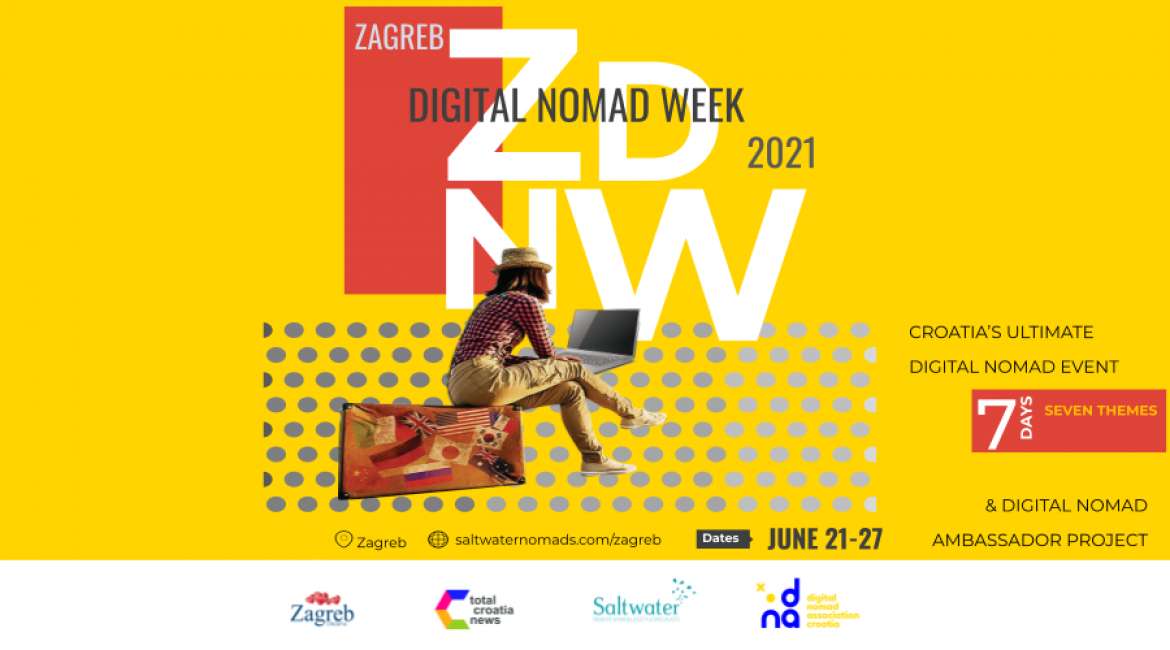
6. You are taking part in Zagreb Digital Nomad Week 2021. Tell us about your involvement, and how important you see the event to develop Zagreb's visibility in the DN community.
We need more events telling people about the collaboration that is happening among key ecosystem stakeholders, co-creation and collaboration are 2 words in the core of what we do (as stated back in 2016 by an article about the Future of work) an it is very nice to see this happening. Impact Hub will be offering free co-working throughout the week, and I will be taking part in a panel on the Friday, entitled DNA Croatia, Policy and Connecting to a Global Community.

7. You were certainly a pioneer all those years ago. What is your view of the startup scene, particularly with a view to collaboration and cooperation?
Cooperation is now happening, but not yet at the level needed. What is needed is more collaboration, but unfortunately many organizations do not understand the real meaning of it and think in transactional terms. We have been able to thrive as a small enterprise because of the collaborations and partnerships with a few but important key stakeholders in the startup scene. I think things are changing and I see a bright future.
8. Zagreb was very different when you moved here, but you were once a newcomer to the city. What Zagreb-specific advice do you have for nomads arriving in the city?
Be open. Try to connect locally from day one and make mistakes. This is a small city and you can get to know a lot of people by listening with attention while speaking with intention.

9. And finally, sell Zagreb to potential DN visitors in a paragraph.
Treat Zagreb as you would like to treat your hometown. Connect with the intention of making a positive impact, be mindful of the cultural differences and do not worry about the local mindset. If you do good the rest will give back… eventually.
You can learn more about the activities of Impact Hub Zagreb on the official website.
To register for free (both online and in person) for the Future of Work day on Friday June 25, register on the Saltwater Nomads website.
For more details of Zagreb Digital Nomad Week, click here.

For the latest news and features from the digital nomad scene in Croatia, follow the dedicated TCN section.
Meet Saad Al Sulaibi, Croatia's First Digital Nomad Permit Holder from Middle East
June 17, 2021 - Croatia has its first official digital nomad from the Middle East. Meet Saad Al Sulaibi from Jordan, owner of a 12-month Croatian digital nomad permit.
1. You are the first person from the Middle East to get the Croatian digital nomad permit. Congratulations! Tell us firstly about yourself, and how your interest in Croatia started?
Thank you so much, my name is Saad Al Sulaibi, from Jordan. I am an account manager for a US-based company, and I work remotely from home in Amman. Through a group of friends I met a Croatian guy who lived in Amman for three years. During that time, he always used to tell me about and show me pictures of Croatia, and especially his home town, Split. This made me curious to read more about Croatia. While researching, I found an article talking about the Digital Nomad Visa. I found this an interesting opportunity and decided to apply.
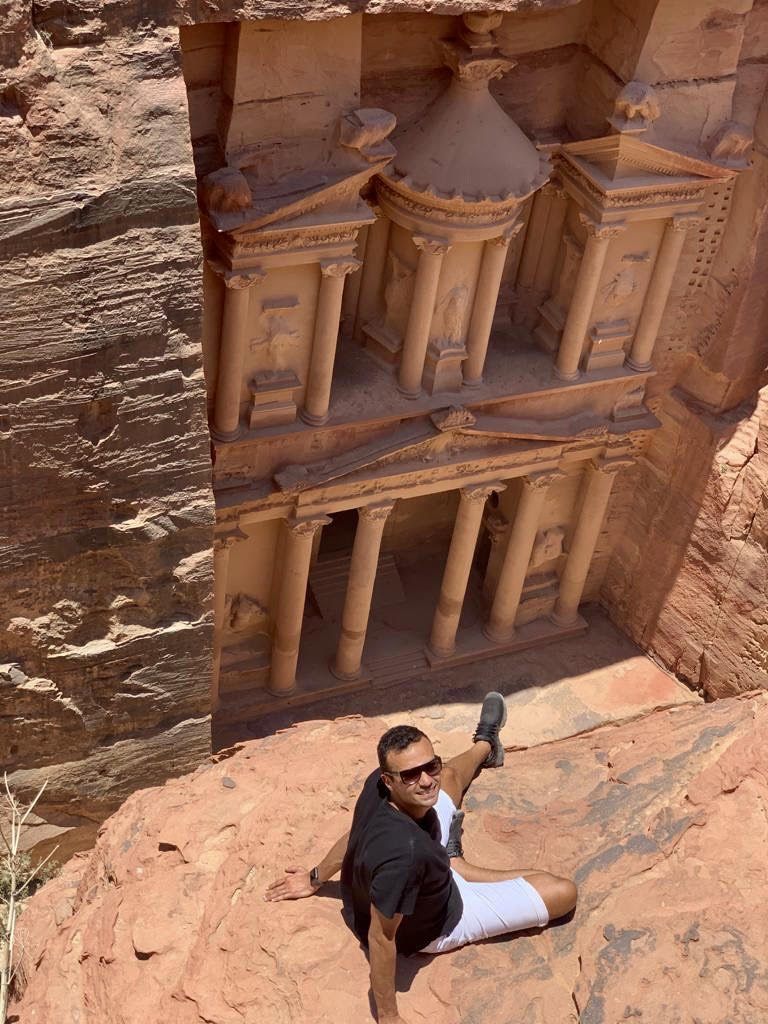
2. We do not have so many Jordanian tourists. Do you think Croatia could be a good destinations for them? What are Croatian tourism's best selling points to the Middle Eastern market?
Definitely. Croatia is a good destination for Jordanians and other Middle Eastern countries. As in large parts of Jordan, Croatia boasts of ancient cities and historic ruins and is full of stunning natural attractions. It also has great a Mediterranean lifestyle with a very affordable standard of living.
3. Why did you decide to apply for the digital nomad permit?
When I read about Croatia and the Digital Nomad Visa option, I asked myself - why not? Croatia has beautiful and very green nature, amazing food and wine, nightlife, is affordable to live in, has good healthcare, a great internet connection for work, and there is no need to pay income tax in Croatia while I am working from there.
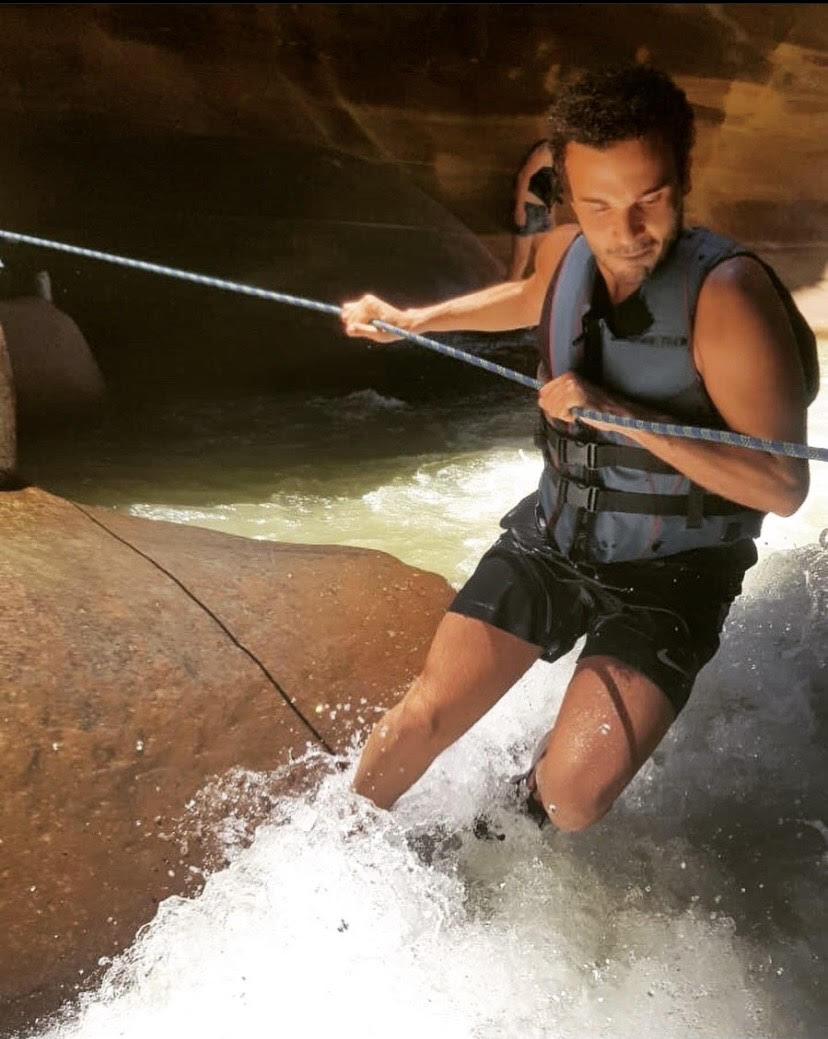
4. There is lots of interest in the permit, but not so much information from successful applicants. Can you tell us in some detail how long the application took, what was involved, how much it cost, and any problems you had?
The application took from 1 - 2 months to get approved, and it cost me around 55 USD. The biggest challenge was not having a Croatian embassy in Amman. As a result, I had to ship my application and other documents to the Croation embassy in Cairo. Also it worth mentioning the daily effort that Ministry of Interior in Croatia to make this application approved.
5. Now that you have a 12-month permit to stay in Croatia, what are your plans?
The plan for now is to Stay in Split to meet with my friend, then to Zagreb then to Krk, Hvar, Dugi Otok, Brač, Vis, Rab, Korčula, Šipan.
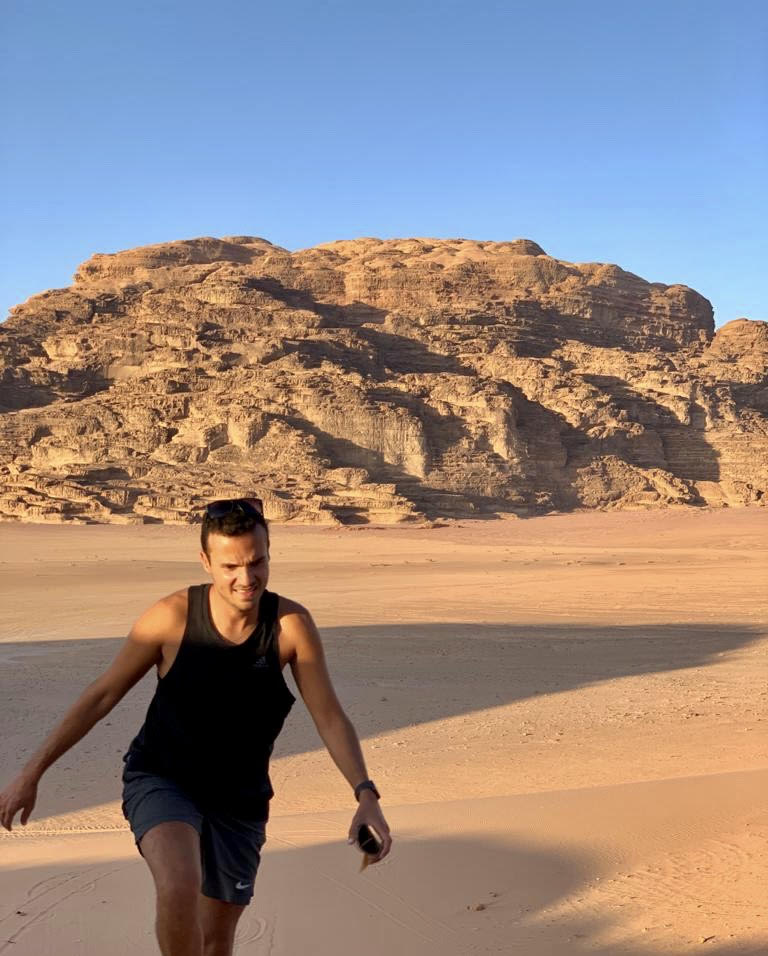
6. In your opinion, what makes Croatia a great nomad destination, and what does it need to do better?
Again, Croatia is one the best places to live in for the reasons I mentioned before. What needs to be improved is marketing Croatia in Jordan and the Middle East.
I would like to use this chance to introduce Jordan to my second family, Croatians. Jordan is great destination to visit, we have many historical places to visit like Petra, Roman theaters, Amman citadel and many others. Also we have a religious sites to be visited like Al-Maghtas where Jesus was baptized by John the Baptist, Mount Nebo where Moses looked on to the Promised Land, Umm ar-Rasas a fortified Roman garrison that contains 16 Byzantine churches, Madaba that holds the Madaba Map which is the oldest mosaic map of the Holy Land.
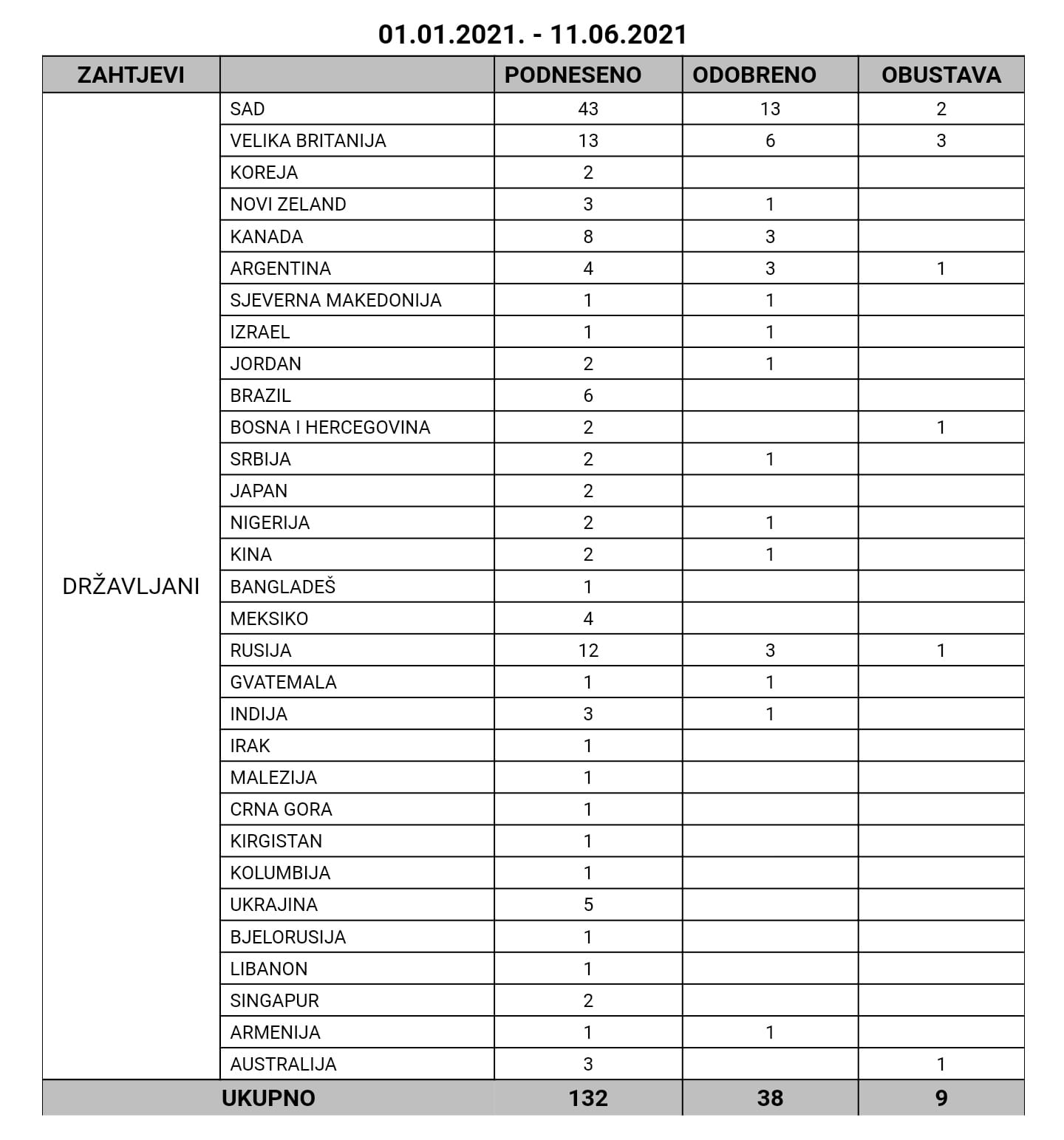
The latest statistics on the Croatian digital nomad permit. 132 applications so far (12 in the last week), with 38 permits granted, and 85 in process.
For the latest news and features on digital nomads in Croatia, follow the dedicated TCN section.

Are you a digital nomad considering the switch to Croatia? Why not join us online or in person at Zagreb Digital Nomad Week 2021, which starts on Monday?
Or be a Zagreb Digital Nomad Ambassdor with a free month of accommodation from July to December, as a guest of the city.
Meet the Zagreb Digital Nomad Week Locations: Canopy by Hilton (Interview)
June 15, 2021 - Zagreb Digital Nomad Week 2021 kicks off on June 21 with Day 1 dedicted to cybersecrity at Canapy by Hilton, a recent very funky addition to the Croatian capital's hotel scene.
I paid my first visit to Canopy by Hilton in Zagreb a few weeks ago, a recently-opened hotel in the capital, and the third in the Hilton brand in the city. It was a hotel like no other I had been to in Croatia. More part of the community than a 4-star hotel. A very modern and funky feel. The perfect place to kick off Zagreb Digital Nomad Week 2021, I thought to myself. And I was delighted when the progrressive marketing team from Canopy by Hilton recognised the digital nomad opportunity for the city and offered to help by hosting that all-important first day. With such a great setting, and with Marko Rakar the keynote speaker on cybersecurity (you can read Marko's interview here), ZDNW should get off to a great start.
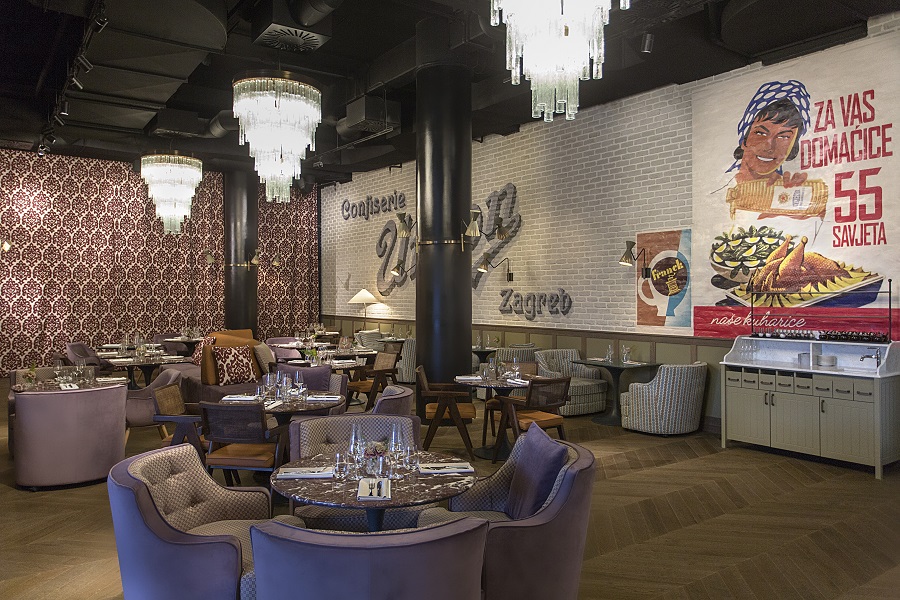
In addition to the great organisation, I am very grateful to Nives Volarevic, Cluster Marketing Director for Hilton Hotels in Zagreb, for finding time for this pre-event interview.
1. I was on a day trip to Plitvice last week with an executive from Airbus who told me that she always stays in the funkiest hotel she can find in a city, and Canopy by Hilton was her Zagreb choice. It is certainly a little different from a traditional hotel concept. As it is a relatively new hotel in Zagreb, people may not be so aware. Tell us a little about theCanopy concept.
Canopy by Hilton is Hilton’s lifestyle hotel brand focused on the neighbourhood - local and authentic.
The hotel is situated in the heart of the Croatian capital, near the city’s main rail station and within the Branimir Centar shopping mall. Guests can grab a complimentary Canopy Bike and explore the many nearby attractions, where there are shops, restaurants, and nightlife in every direction. With more museums per capita than any city in the world, and with a vibrant art and theatre scene, Zagreb is a city of great culture with much to explore.
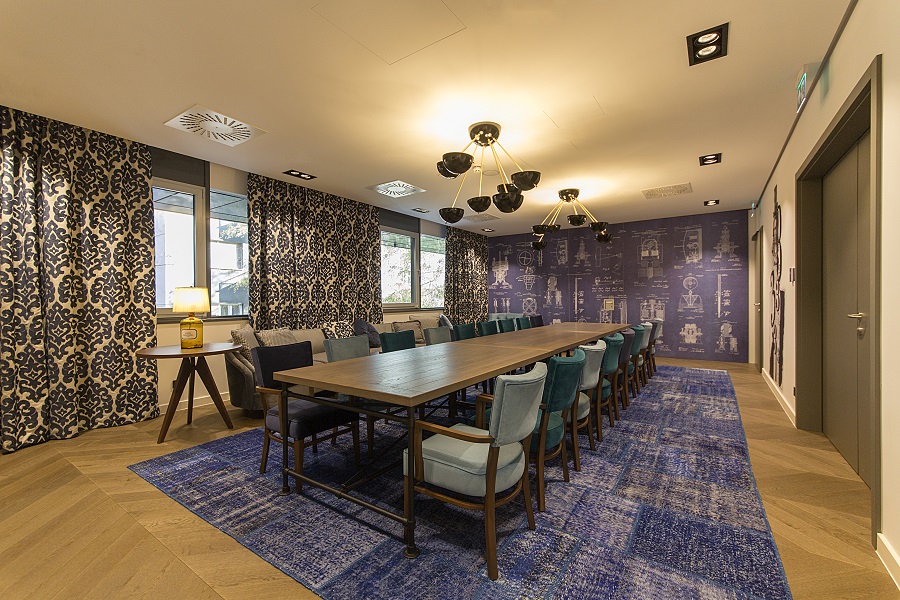
The hotel is home to 151 guestrooms, including eight spacious suites. The interiors of the rooms are inspired by the local neighbourhood, with local textiles and artwork featured throughout, and the signature canopy is inspired by Croatia’s national emblem.
For breakfast, guests can start their day with an inclusive artisanal breakfast in Canopy Central or have a Canopy Breakfast Bag delivered to their door. Guests can savour authentic cuisine with fresh local ingredients at the ReUnion Restaurant, or small nibbles, bites and local spirits, wines and craft beers at Canopy Central Café and Bar. Each evening, the Canopy Central Bar hosts a complimentary tasting of local drinks and bites for hotel guests.
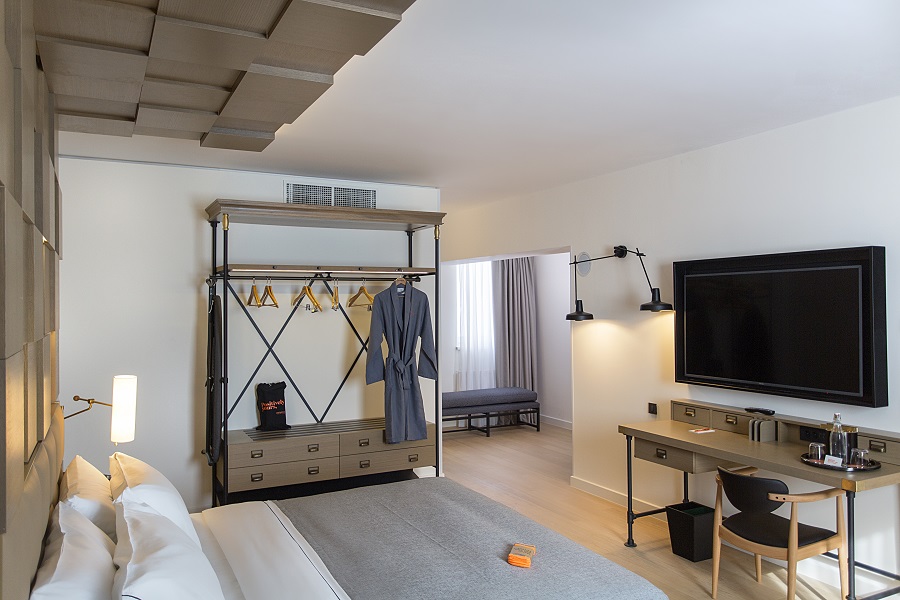
For meetings and events, Zagreb is a great choice as it is superbly connected by its recently expanded airport which is just 20 minutes away from Canopy by Hilton Zagreb. The hotel has two meeting rooms which are ideal for smaller meetings and social events such as cocktail receptions. The hotel also has a spacious 24-hour fitness centre.
Canopy Enthusiasts (staff), or local experts, are available for guests looking for recommendations on the must-see landmarks in Zagreb – anywhere from restaurants to excursions.
2. Canopy by Hilton will be hosting the opening day of Zagreb Digital Nomad Week 2021. Tell us about your involvement, and why you decided to get involved.
We recognized the opportunity to get to know digital nomads better, their needs and desires, special requirements, but also to explore a new tourist niche in the market. Canopy by Hilton Zagreb with its atypical design, relaxed atmosphere, graffiti on the walls and local character is really made for digital nomads to absorb the local art and culture and get to know Zagreb and its residents. Also, there are some fantastic spots in the hotel to use as a working space; community table at our Canopy Central bar, social table at ReUnion restaurant. Business centre on 1st floor. And a Retreat room if they need some quite place to work or meet.

3. There is certainly a lot of buzz about Croatia and digital nomads, especially after the introduction of the 12-month permit. Are you seeing an increase in remote workers staying at your three Zagreb hotels?
In the last year and a half we have noticed a larger number of guests who came to Zagreb for business, but due to covid measures spent more time in the rooms working. Many of them have recognized Zagreb as a destination that is well connected with European cities, provides quality and a not too expensive lifestyle and has a diverse offer of art and cultural content.
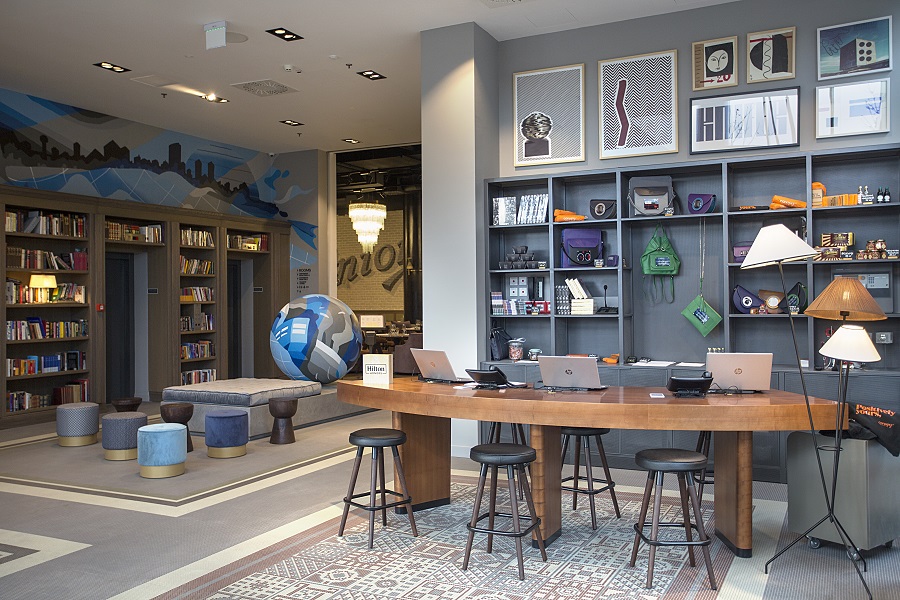
4. How does a hotel adjust its offer to meet this new tourist demand, and what concrete steps have you taken in this direction?
We are still just learning how the life of a digital nomad works, what are their needs and their expectations. We try to provide everything they expect but also a little bit more.... We know that working on a computer is often lonely so we assumed that hanging out with people with similar interests would be something that would be a good counterbalance. We are adapting to the new situation, we create our hotel offer according to their needs. At this point, the most important thing is to be flexible.
5. What are for you the biggest attractions of the city of Zagreb for potential digital nomads?
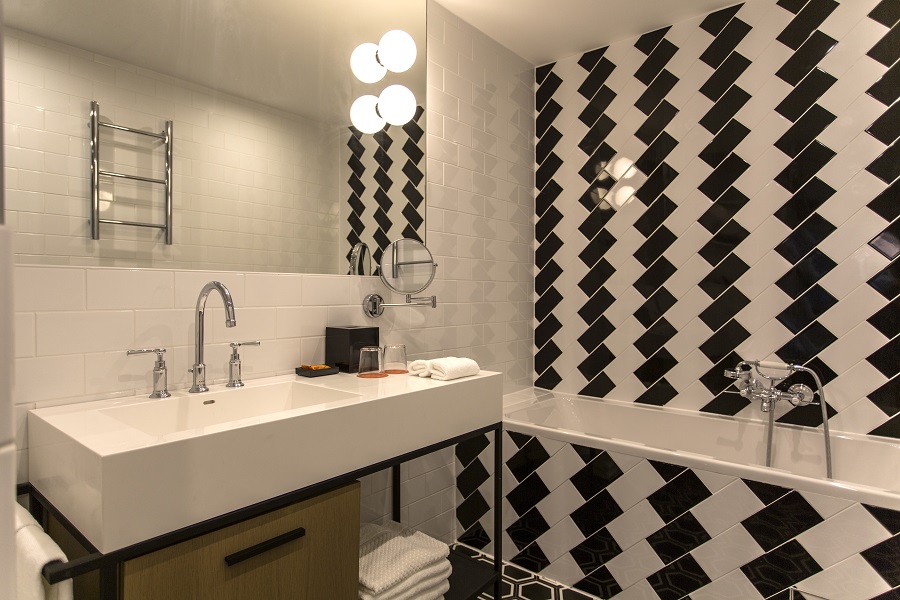
Except the well-known Zagreb attractions such as the Old Town or the Cathedral in Zagreb, there are many less-known places, parks, churches and curiosities.
I would recommend many excellent food, film and wine festivals, exploring the surroundings of Zagreb through excellent wineries, many exhibitions of Croatian and international artists. I would especially highlight the Grounded Solar System of Zagreb; many don't know that in 2004, the other planets joined the Grounded Sun (author Ivan Kožarić, Bogovićeva Street) to form Zagreb's grounded solar system. The creator is Davor Preis, who had an incredible idea how to make it possible for citizens of Zagreb to explore our Solar System without leaving our beloved capital. He has placed the planets all across the town, according to their correct sizes and distances from the Sun. They are placed in more than one direction from the Sun as if they were actually rotating around it. Today, finding the planets is considered a treasure hunt loved both by locals and tourists in Zagreb.
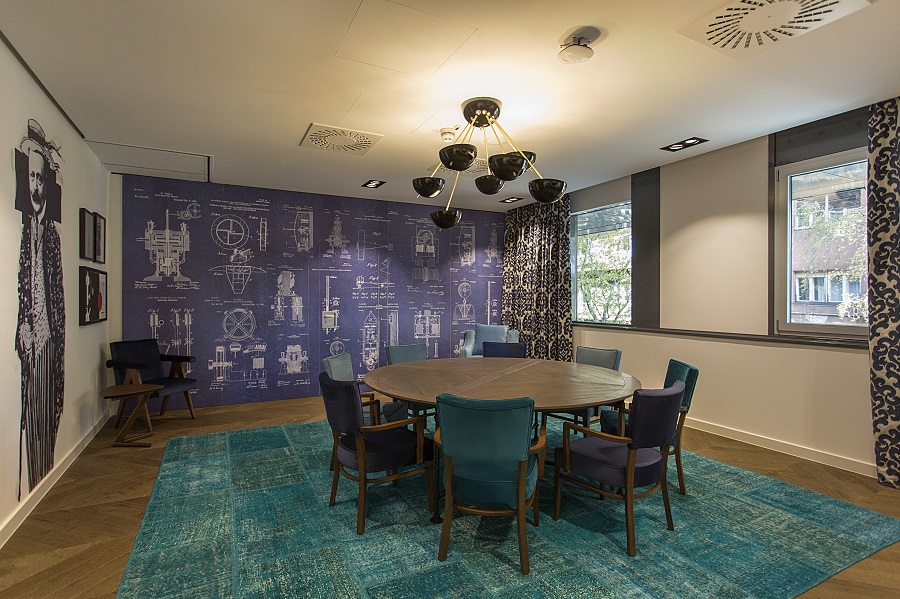
You can learn more about Canopy by Hilton in Zagreb on the official website.
For more information about Zagreb Digital Nomad Week 2021 & Zagreb Digital Nomad Ambassador Project, visit the Saltwater Noamds website. ZDNW is organised by Saltwater Nomads, TCN and Zagreb Tourist Board, who are financing the project.
For the latest news and features about digital nomads in Croatia, follow the dedicated TCN section.
Marko Rakar, Cybersecurity Keynote Speaker at Zagreb Digital Nomad Week (Interview)
June 14, 2021 - Zagreb Digital Nomad Week 2021 & Zagreb Digital Nomad Ambassador Project starts a week today, with the first day dedicated to the important issue of cybersecurity. And who better to present a keynote speech on cybersecurity in the Croatian capital than Marko Rakar?
Canopy by Hilton will be the venue of the opening day of Zagreb Digital Nomad Week - 7 days, 7 themes, and 7 locations in the city. Of the 7 themes to be covered in the week (cybersecurity, online presence, remote careers, tax & finance, wellbeing, the future of work, and exploring Zagreb), the opening day focused on cybersecurity will possibly be the most stimulating. And when you add a simulating speaker to a stimulating topic, ZDNW is destined to get off to a great start. We are delighted to announce Marko Rakar as the keynote speaker on Day 1, and I am grateful to him for sparing a little more time for this pre-conference interview.
On Monday, 21 June, keynote speaker Marko Rakar of Mrak.biz will bring us insights into cybersecurity and data analytics as it relates to location independent work, Croatia and global issues for cybersecurity related to recruitment, government policy and business.
Marko Rakar is recognised by the World eGovernment forum as one of the “Top 10 who are changing the world of politics on the internet”. Based in Zagreb, Marko has diverse experience in media, consulting, lecturing and speaking engagements.
Marko is Chief executive of the consulting company MRAK Services Ltd headquartered in Zagreb, Croatia.
1. Cybersecurity - it is the thing we all know we should pay more attention to, but rarely do. Give us the bad news - how worried should we be?
In real life, if you stumble upon an unsafe situation you are likely to have only one adversary (or maybe few people operating in unison), but when we talk cybersecurity, you can be attacked by many completely different actors non-stop, and sometimes many will attack you at the same time. So, while your immediate physical security is not threatened - in cyberspace, you are facing many more adversaries of whom many are prepared and well versed in what they are about to do. Furthermore, with our increasing reliance on everything virtual where more and more of our identities are basically stored in some cloud, keeping our virtual identity safe and out of reach of bad actors should be our daily task. So yes, we should be worried.
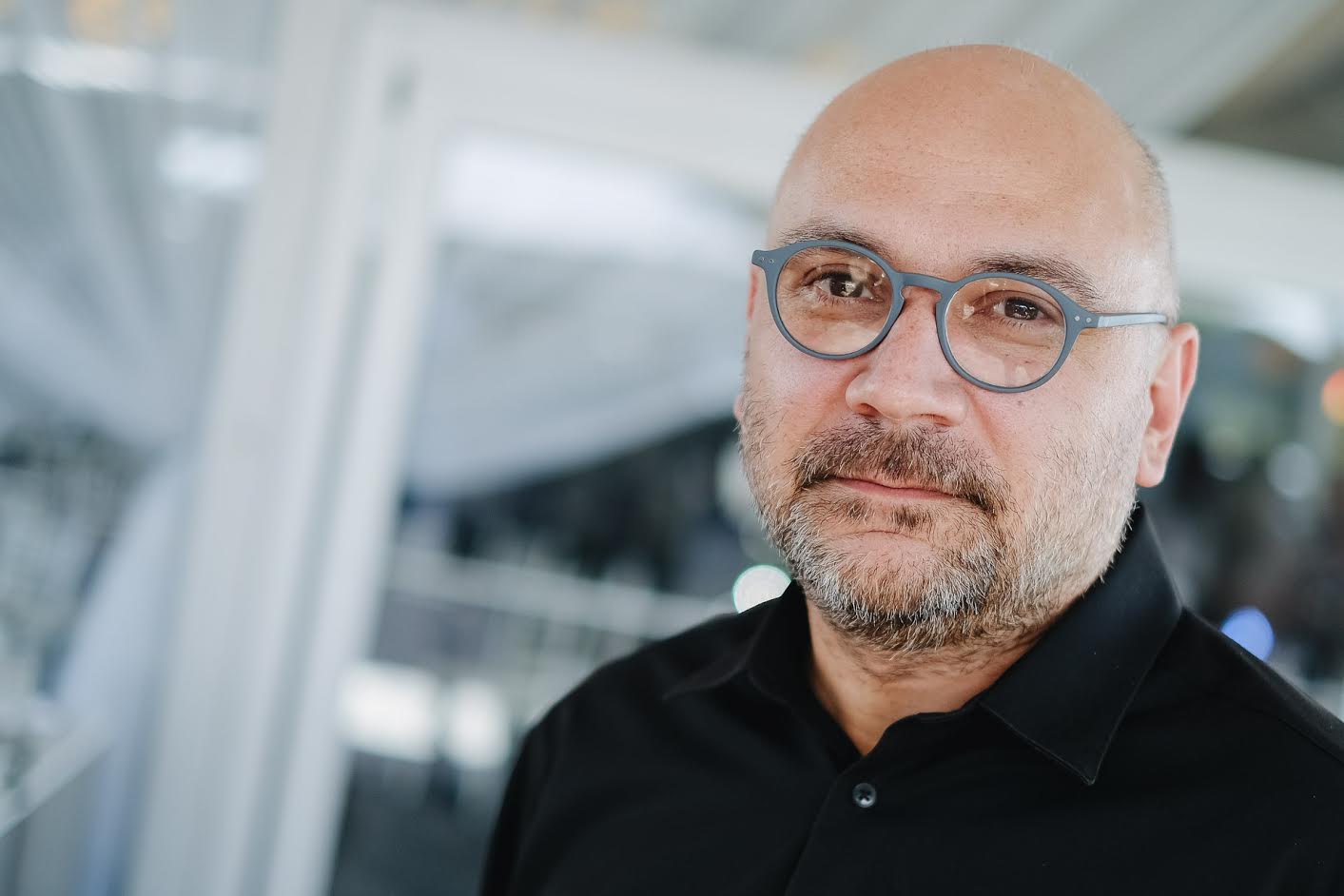
2. How does Croatia rank in terms of cybersecurity safety?
It is a confusing question, cybersecurity is (in my opinion) not something which is or can be very different regarding your physical location, cyberspace does not recognize national borders. You face exactly the same risks being in US, Croatia or China, it is more likely that your cyber visibility will make you a bigger or smaller target. Still, as Croatia is one of the safest places on the planet for you to be, similary you are quite protected in cyberspace as well. In general, we face the same risks in some areas such as viruses or ransomware attacks, but are less exposed in some other areas such as identity theft and similar.
3. A few simple tips for the common digital nomad to improve their own personal cybersecurity?
Well, when talking about cybersecurity, I am strong believer in firm discipline and protocols. This means that I will always (no exceptions under any circumstances) log on to a service exclusively from a device which I own. My passwords are very long and yours should be too. Anything with 14 characters or more should be quite safe - think of a favourite poem or sentence from a book, something really long. You should use different passwords on different services, never re-use passwords, you should use two factor authentication on all important accounts (social media, your main email account) and anything related to banking and your financials.
Do not leave credit/debit card information on any service except for ones which you use regulary and for which you have reasonable assurance and trust that they are safe. When you get email which asks for some of your personal information, or even asks you to reset a password, spend some time examining that message and check if it is valid and from exactly the person/institution which is presented in that message. Have your computer fully updated, make an ocassional full computer antivirus scan. Never execute software which you have downloaded from an unknown email message... There is no "secret recipe" to cybersecurity, only discipline and clearheaded thinking.

4. What are the biggest challenges facing governments and big business, where are the main threats coming from, and how can they best prepare themselves?
Currently and possibly for some time, the largest threat is and will remain ransomware, software which will encrypt the contents of your computer and asks for some kind of bitcoin ransom in order to get your data back (and/or not leaked to the internet). When you have large systems with hundreds or possibly thousands of computers, your cybersecurity is as strong as its weakest link - which usually boils down to the dumbest person in the building who brought his son's notebook "which does not work properly" and then connects it to the company wide network (and of course, the corresponding IT department which did not prevent that from happening). So once again, computers should be fully updated, unknown devices from untrusted users should never be allowed on your network, regular security sweeps should be executed and above all, you should do regular backups which are stored separately from your data (Jesus not only saves, but frequently makes a backup is sensible advice to more religious people, and YOU WILL became religous when ransoware attacks).
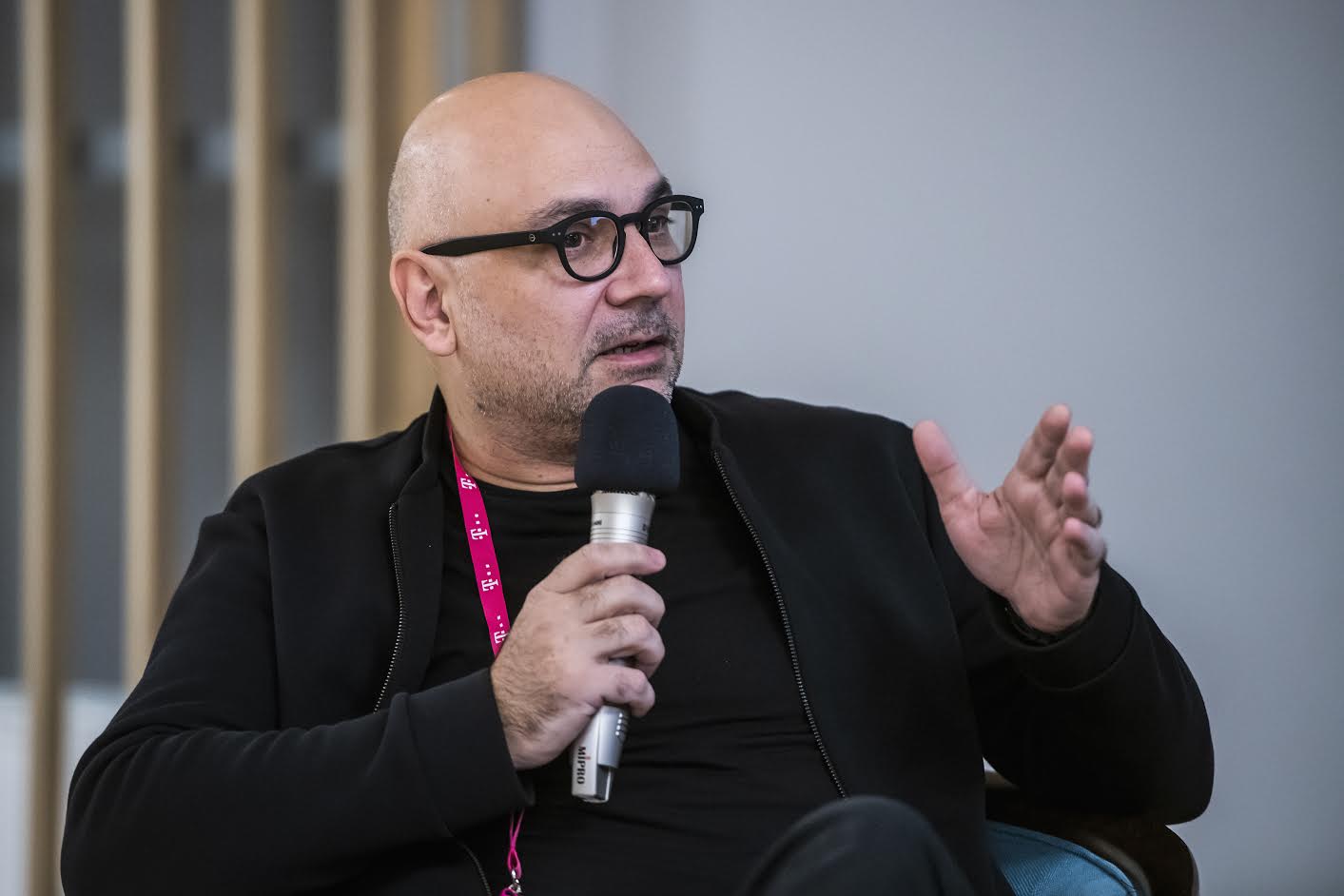
5. Tell us a little about digitalisation and Croatia. How are we doing, and how to speed up the digital revolution here?
Digital transformation in Croatia is, like everything else here, a story of contrast and unbeliveable achivements side by side colossal incompetencies and missed opportunities. In general, I would say that some services are great, such as netbanking services which are on the level of the very best you can find anywhere. Our government services are developing and are avaliable, but their development is uneven to the point that some services work great and flawlesly while others are barely usable and are absolutely unreliable to the point that some government eServices work only during the day (we literally have servers, plural, which will respond to you only during weekday working hours).
An important thing to know is that the procedures for handling documentation and legal processes in the Croatian "uhljeb"-powered bureaucracy have their roots in the 18th century Austro-Hungarian Empire. Back then people did not design their formal processes with computer workflow in their minds, so some of them are really, really hard to "translate" or digitise. Croatians, more than others, prefer form over function, which also means that we are really unwilling to take a long and hard look on why we do some things, and are very hesitant to change. As a result some of our eServices will leave you head scratching and wondering what happened there (or which chain of decisions lead to that particular result).
I am usually highly critical of Croatian eGovernment efforts, and I am critical not because I think they are particulary bad (but, as I said there are some unbeliveable stupid examples and situations), but because I know what kind of services we could have. To summarize, you will be pleasently surprised on how well Croatian businesses are handling the digital age and likely with eGovernment services too. We are probably at or above the EU average, and in some cases, we are cutting edge on the global stage.
6. There was a recent change of power in Zagreb, with the incoming mayor seemingly more open to reaching the digital age. What are your thoughts on the incoming administration and digitalisation?
The problem with Zagreb (and many other places as well) is that they have had the same leadership for a very long time. Those leaders are in general uneducated and their work processes and institution grew through the years by means of putting out one fire after the other. As a result, you have a barely functional administration which, to an outsider, looks like Frankenstein's monster, but is actually quite logical for us who witnessed on how it came to be.
The new Zagreb leadership (as well as Split or Rijeka) is full of highly educated people who have seen the world, who have breadth of sight and long-term perspective on society. They will, I sincerely hope, try to make order out of the mess they inherited. We all have high hopes, and I think that we will start seeing first results within months. All of us should be avaliable to help them with our ideas, solutions and hard work.
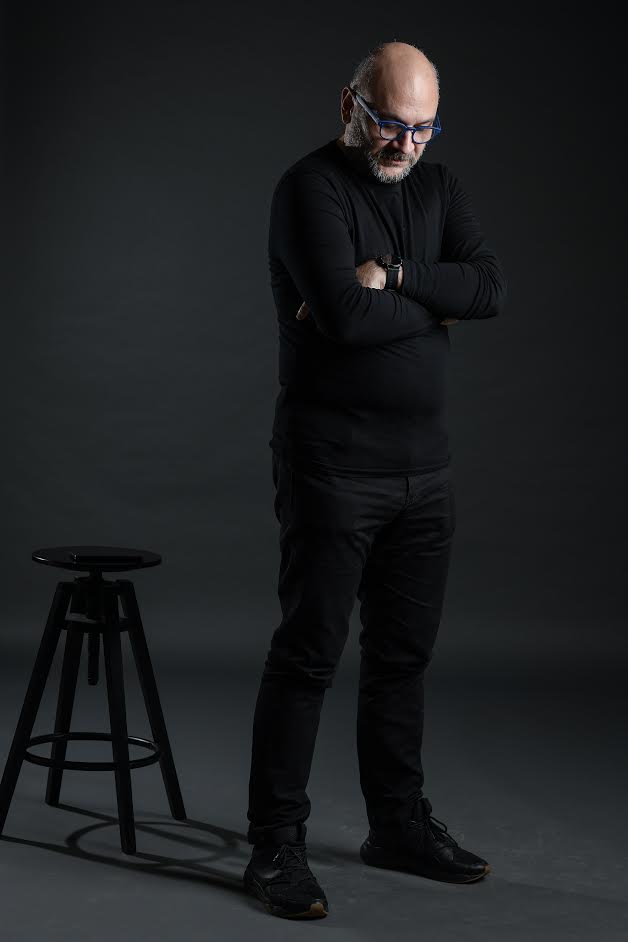
7. You are a man who works from an Internet connection around the world, and a long-term Zagreb resident. How do you rate Zagreb as a digital nomad destination in terms of safety, lifestyle and things to do?
Zagreb is a safe place to be, one of the safest you can imagine and security should really not be an issue. Furthermore, Zagreb is a city of culture, everyone will find something for themselves. There are a number of beautiful parks and a mountain literally within minutes of the city centre. You can bike almost anywhere, nothing is too far away and you can always relly on public transport and the omni-present taxi service. You will find many restaurants, clubs and bars and whole areas dedicated to leisure activities. There are many startup accelerators, shared workspaces as well as different events on just about any topic you can imagine.
On top of that, you will experience the relaxed lifestyle which is harder and harder to find these days. Not to mention that there are many destinations nearby, within two hours you can find your self swimming in the Adriatic, climbing the Alps, enjoying Slavonian wine cellars, or walking through unbeliveable beautiful and a slightly embarrasingly large number of waterfalls at Plitvice Lakes National Park. (Digital) nomads are welcome to Zagreb and I am sure they will like what they find here.
Want to attend the Marko Rakar session cybersecurity on Monday, June 21, either online of in person? Register here.
For more information about ZDNW 2021, check out the dedicated Saltwater Nomads page.
For the latest news and features about digital nomads in Croatia, follow the dedicated TCN section.


